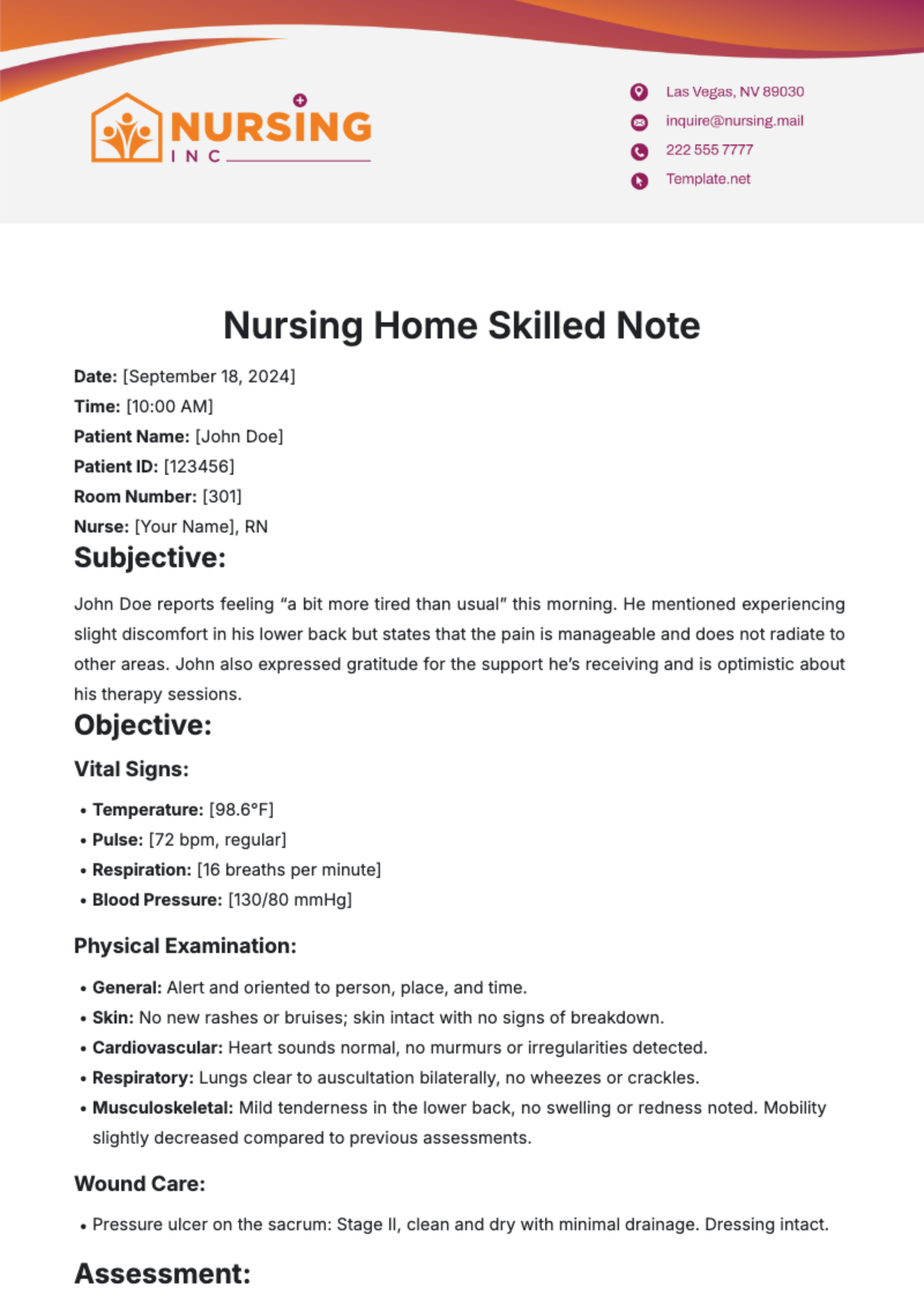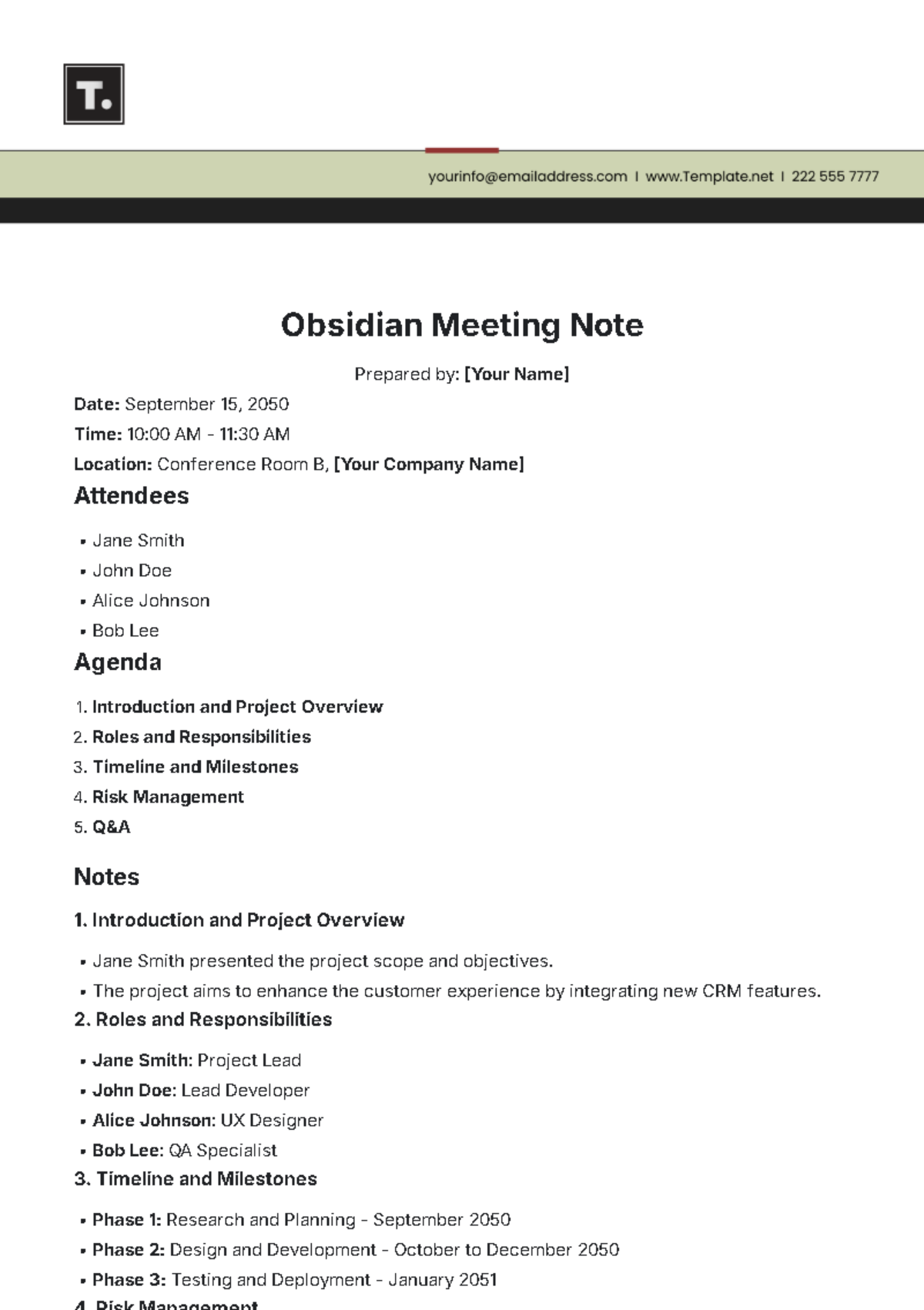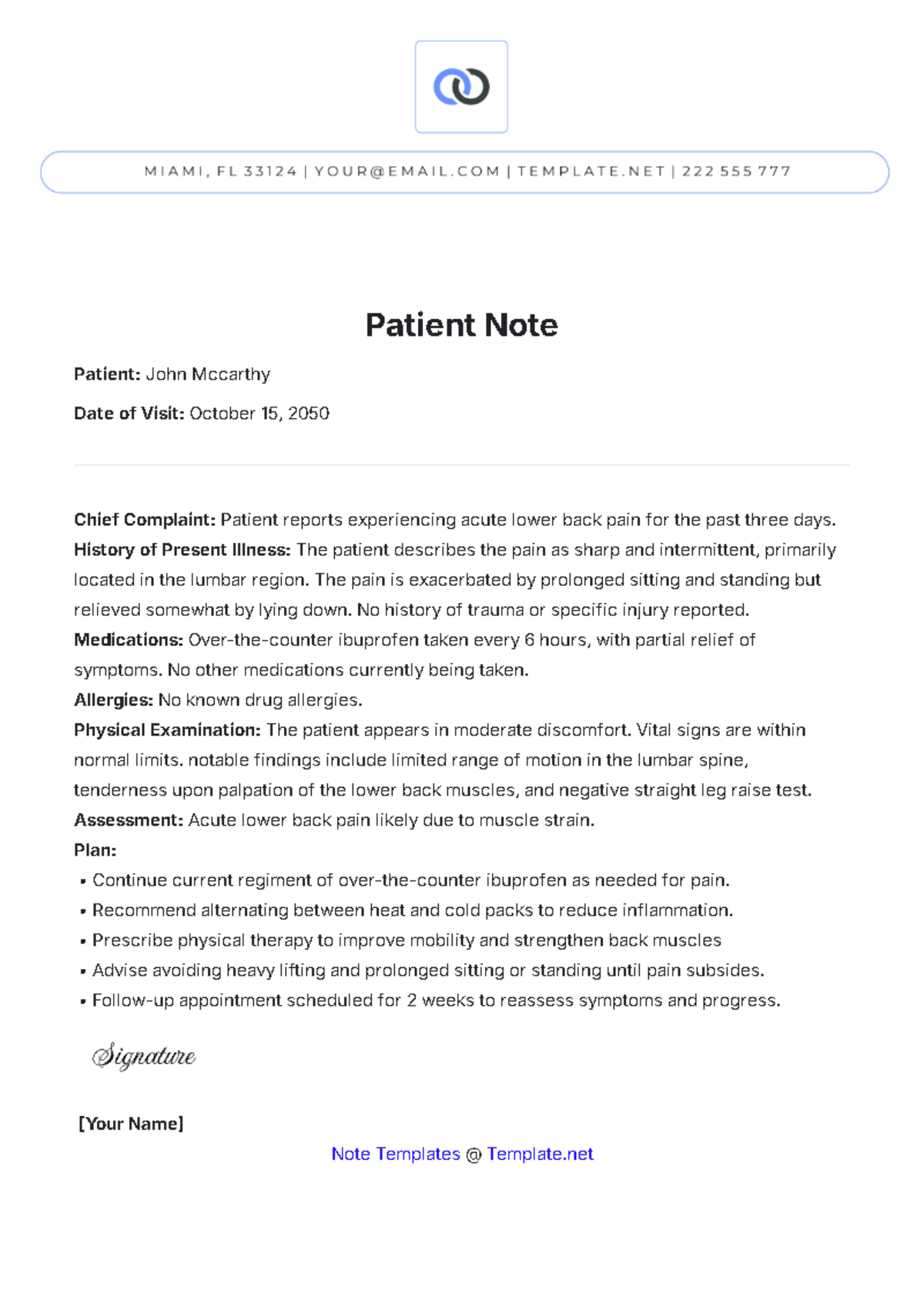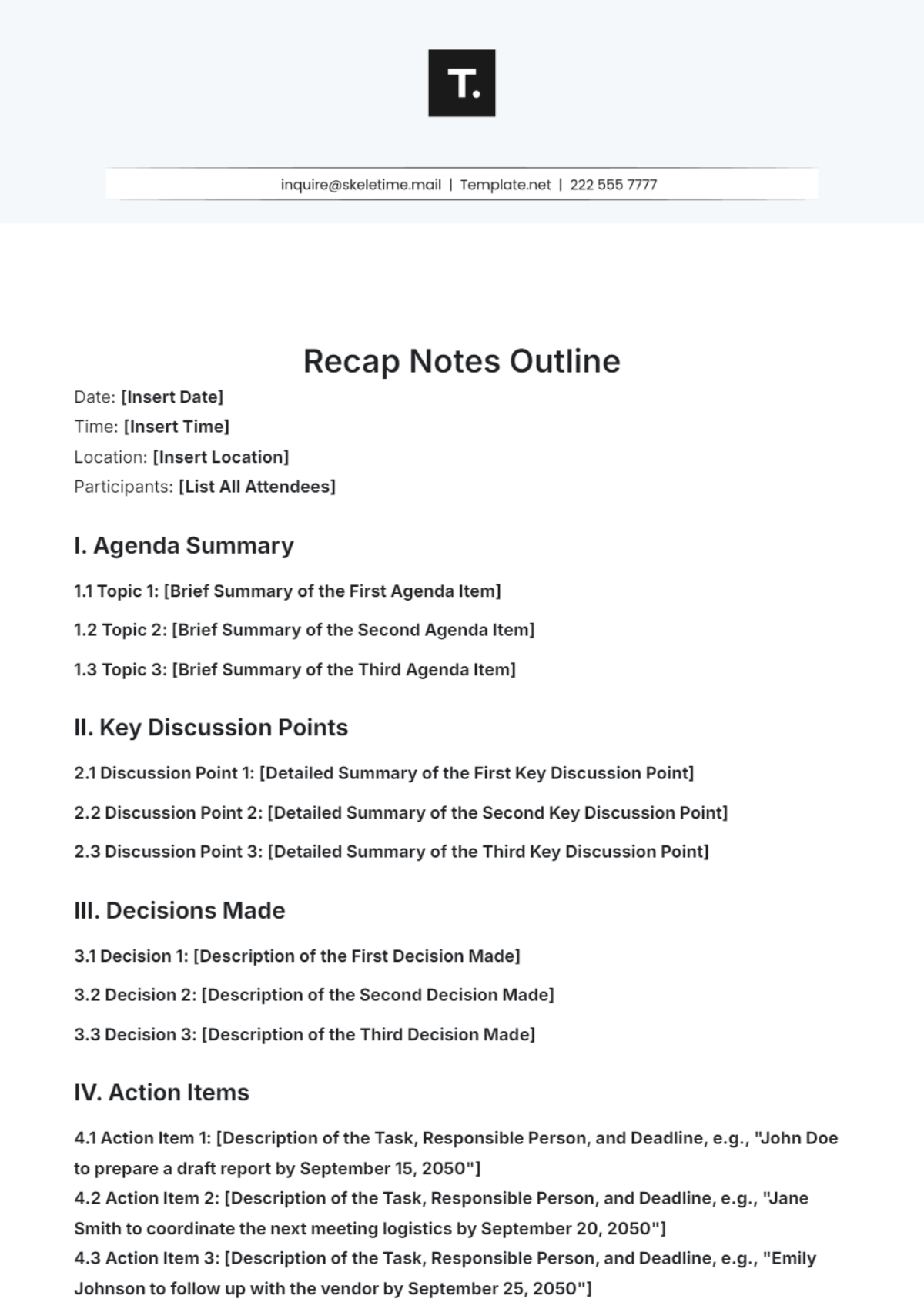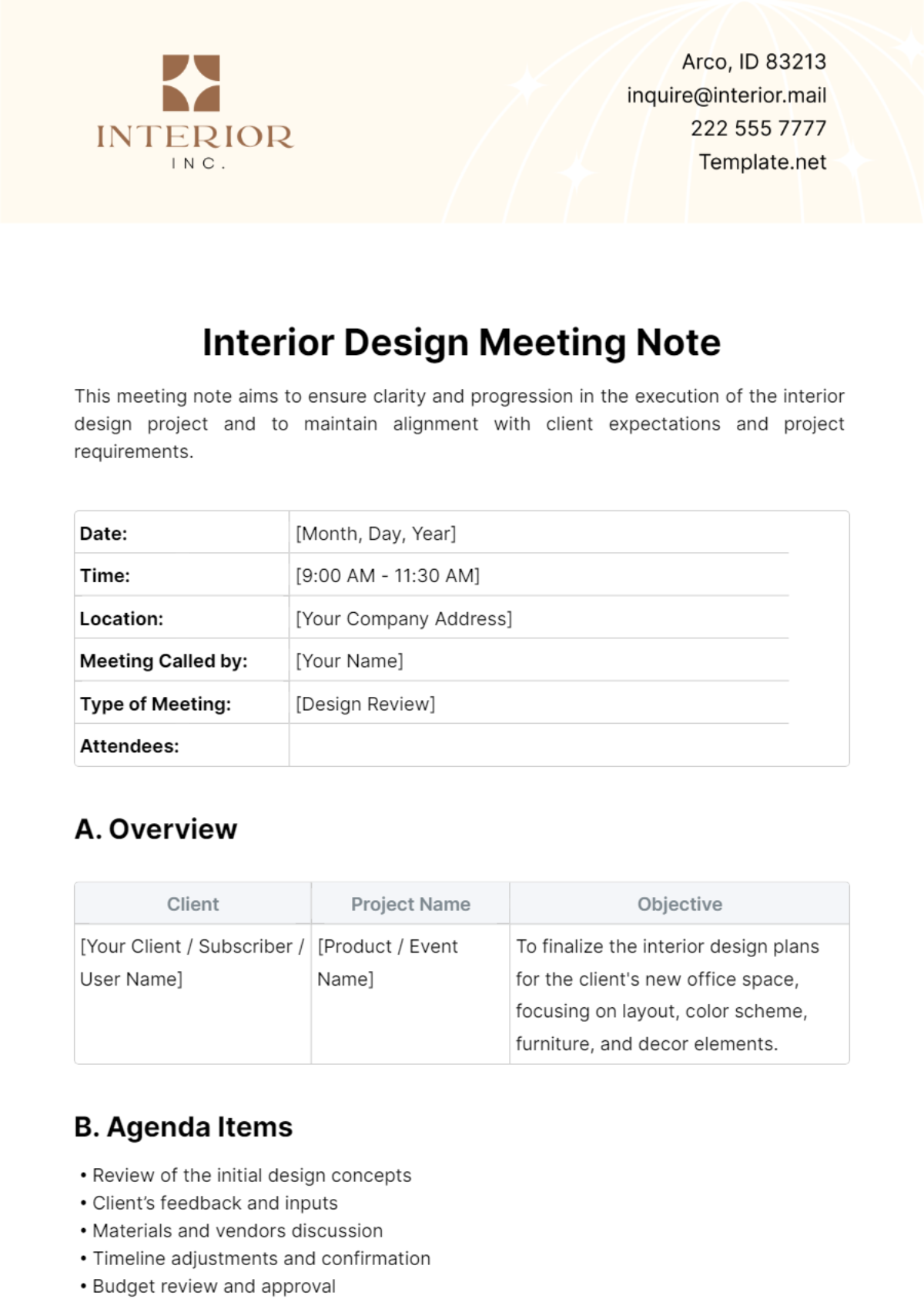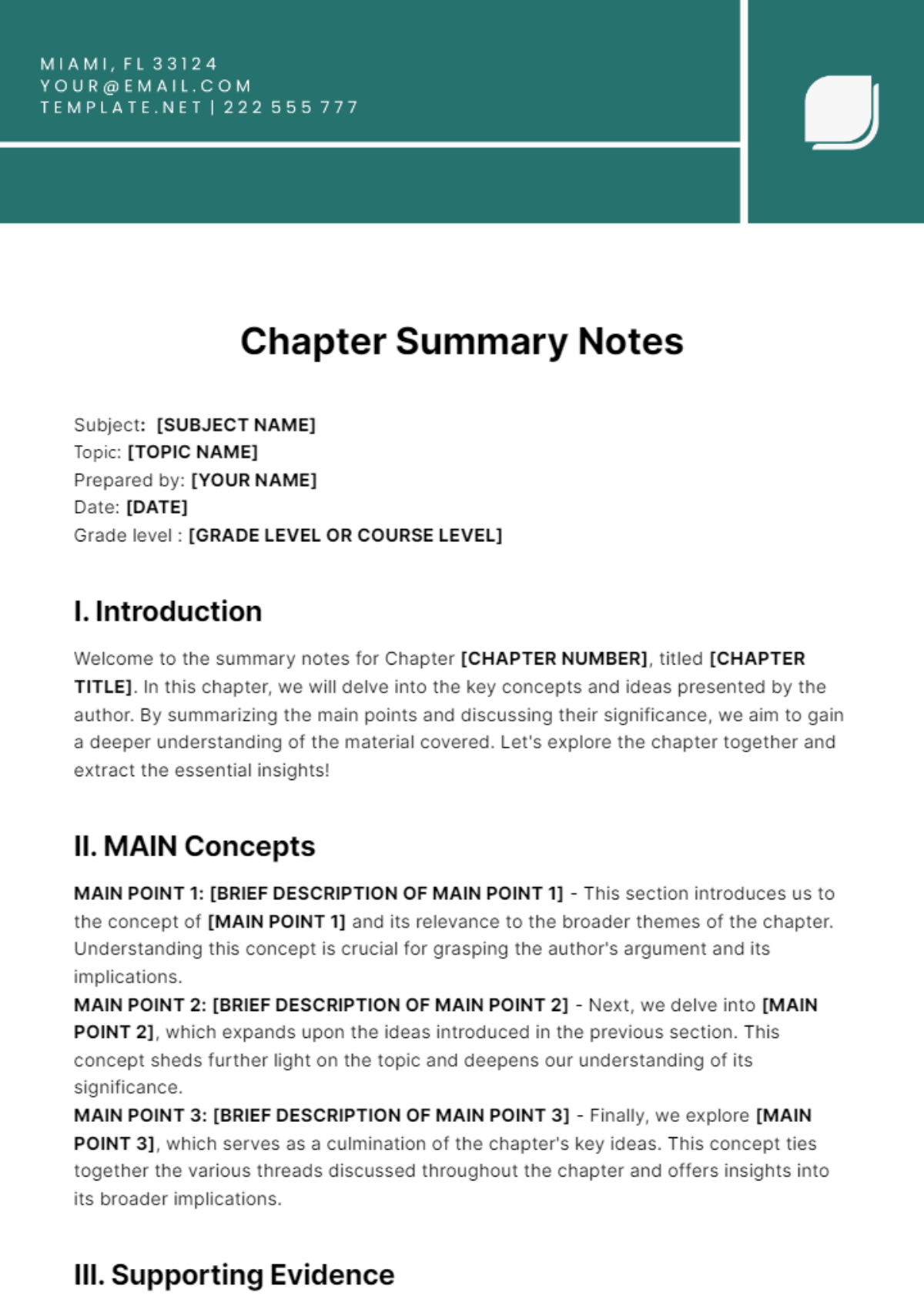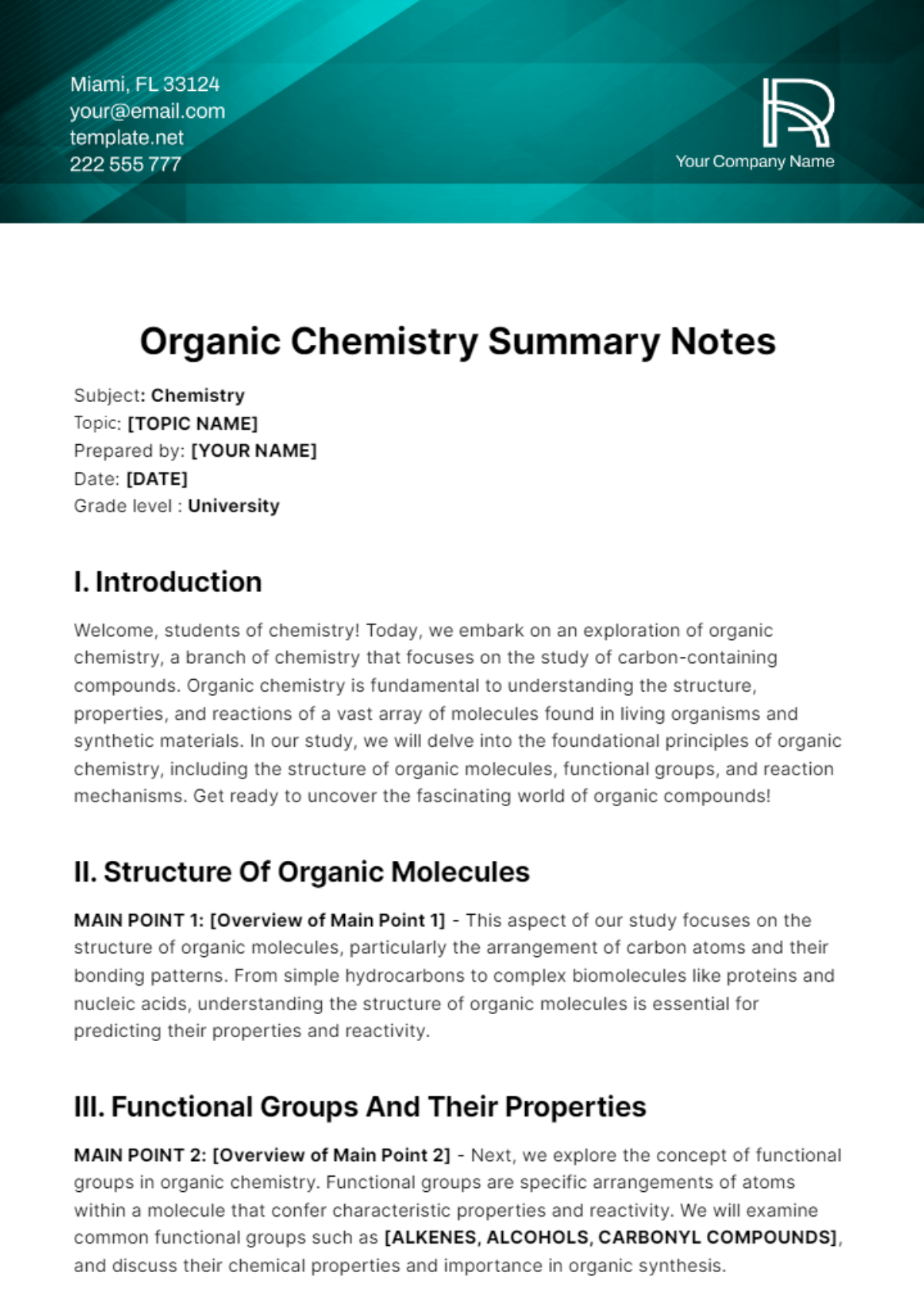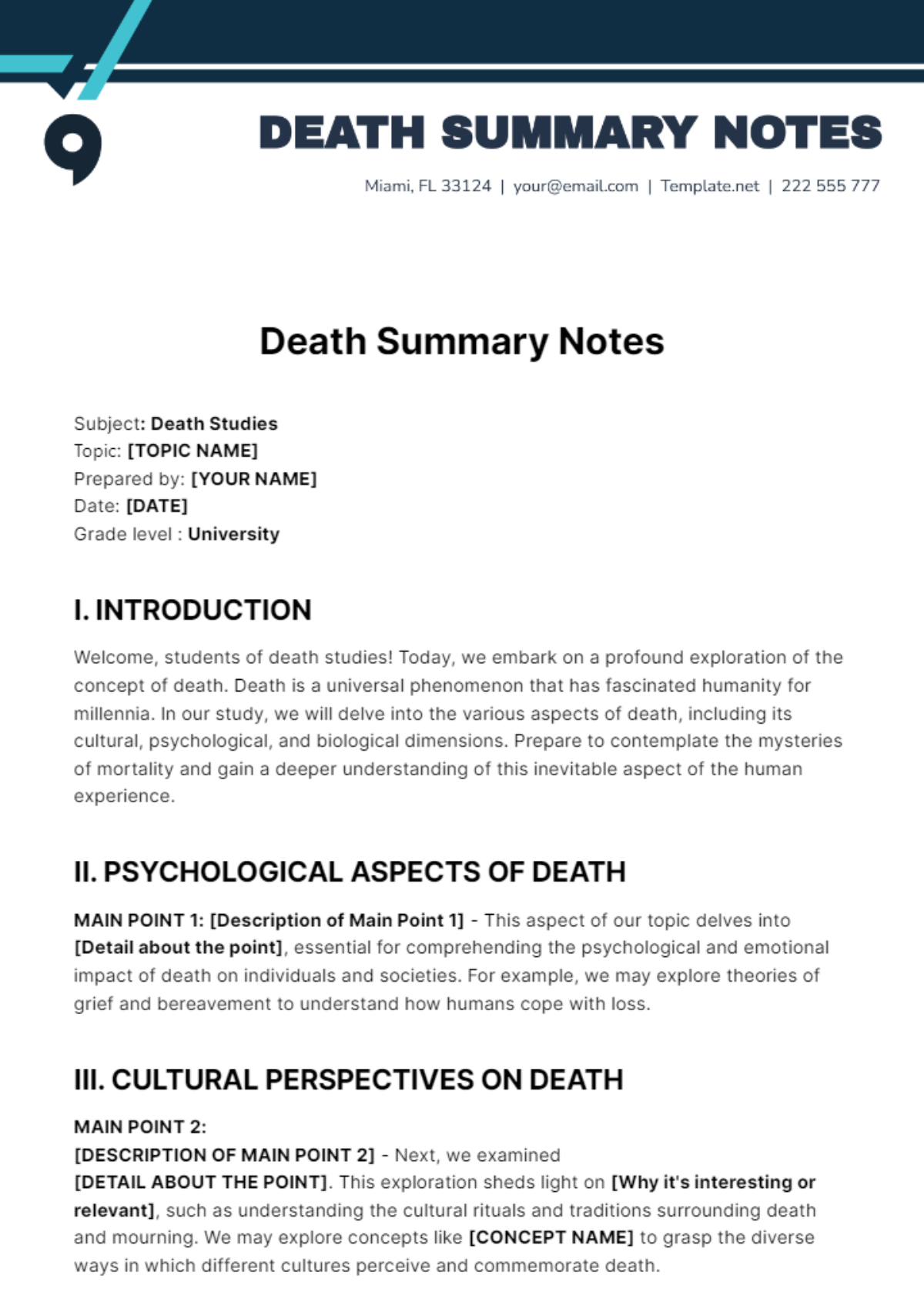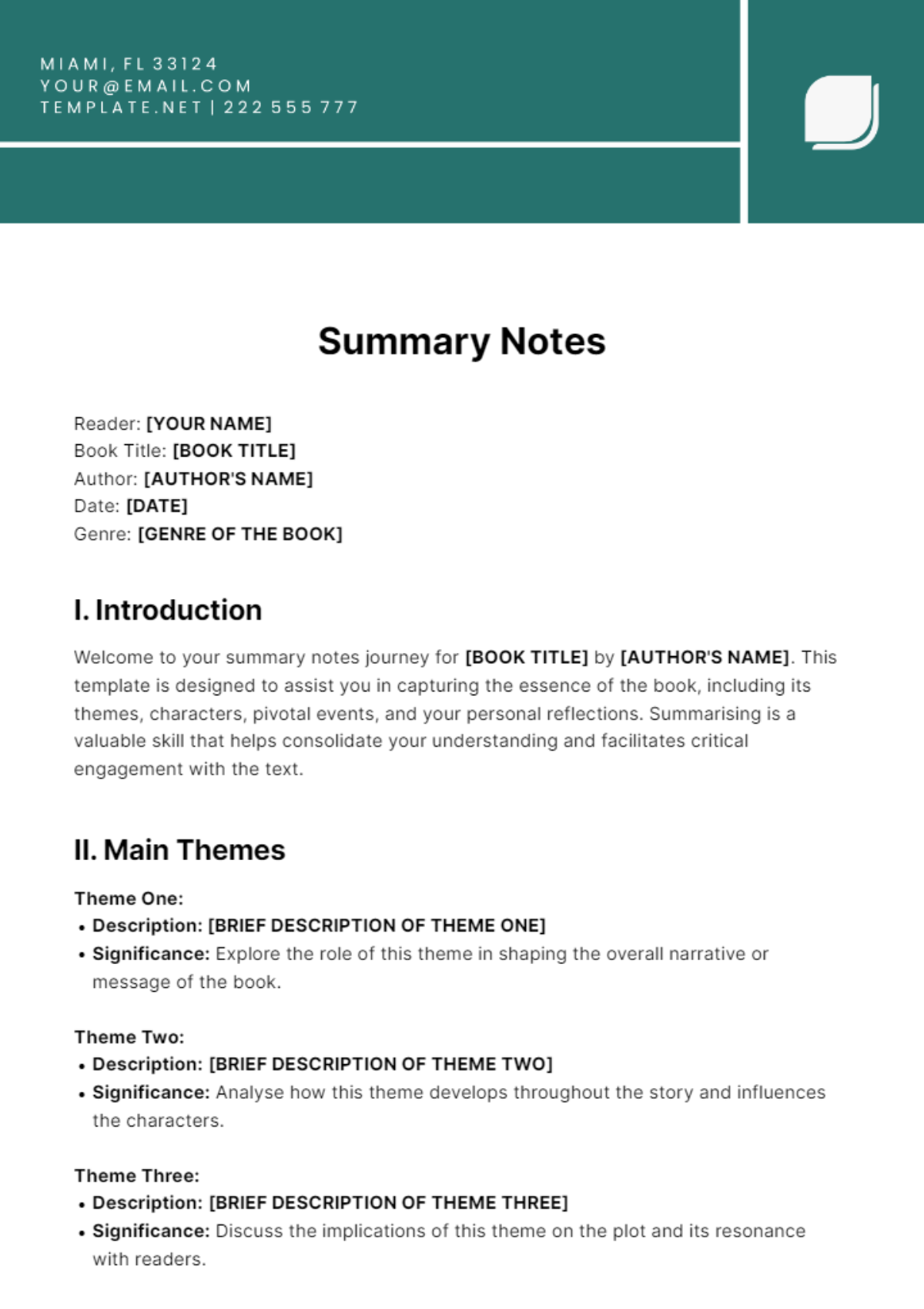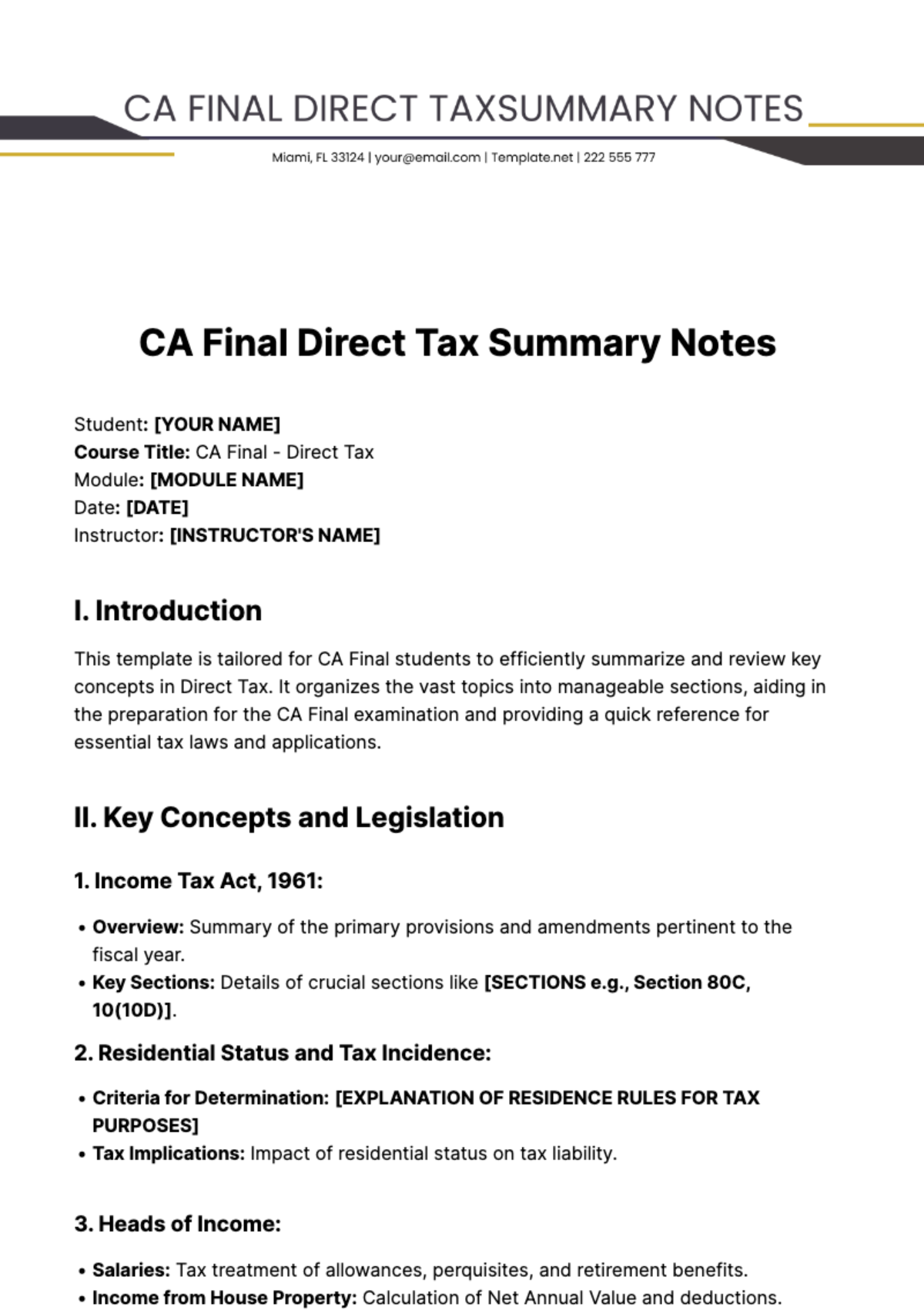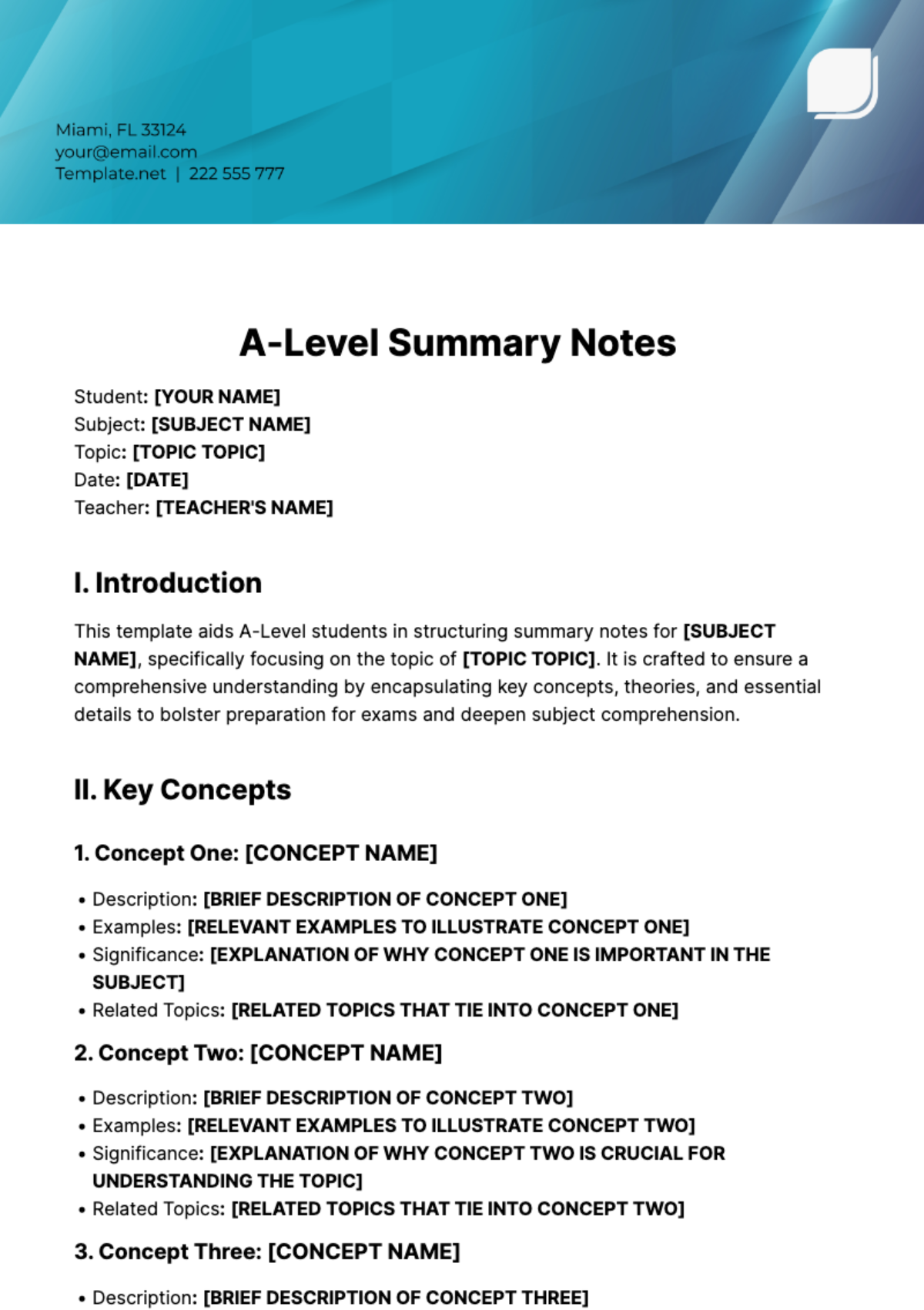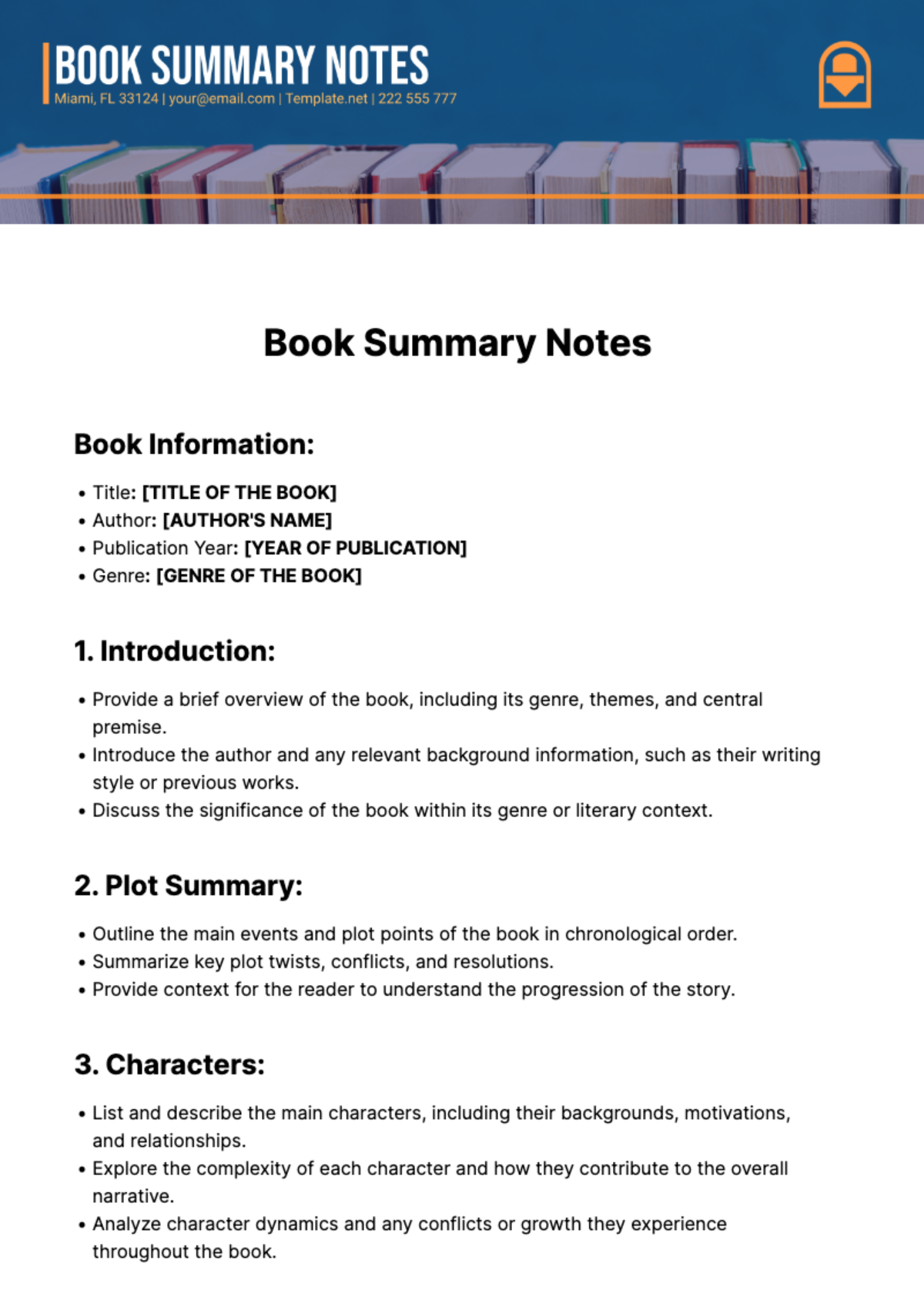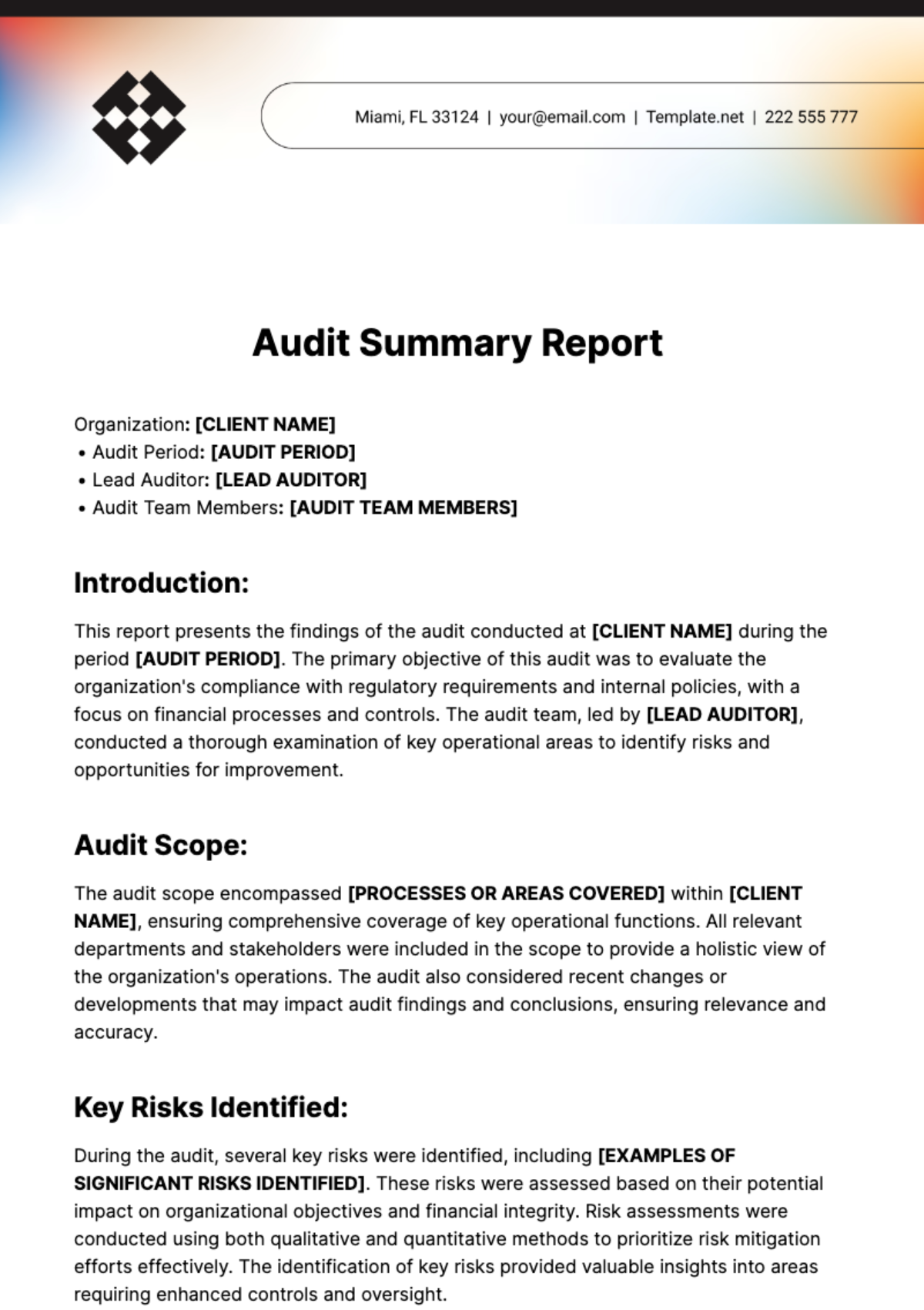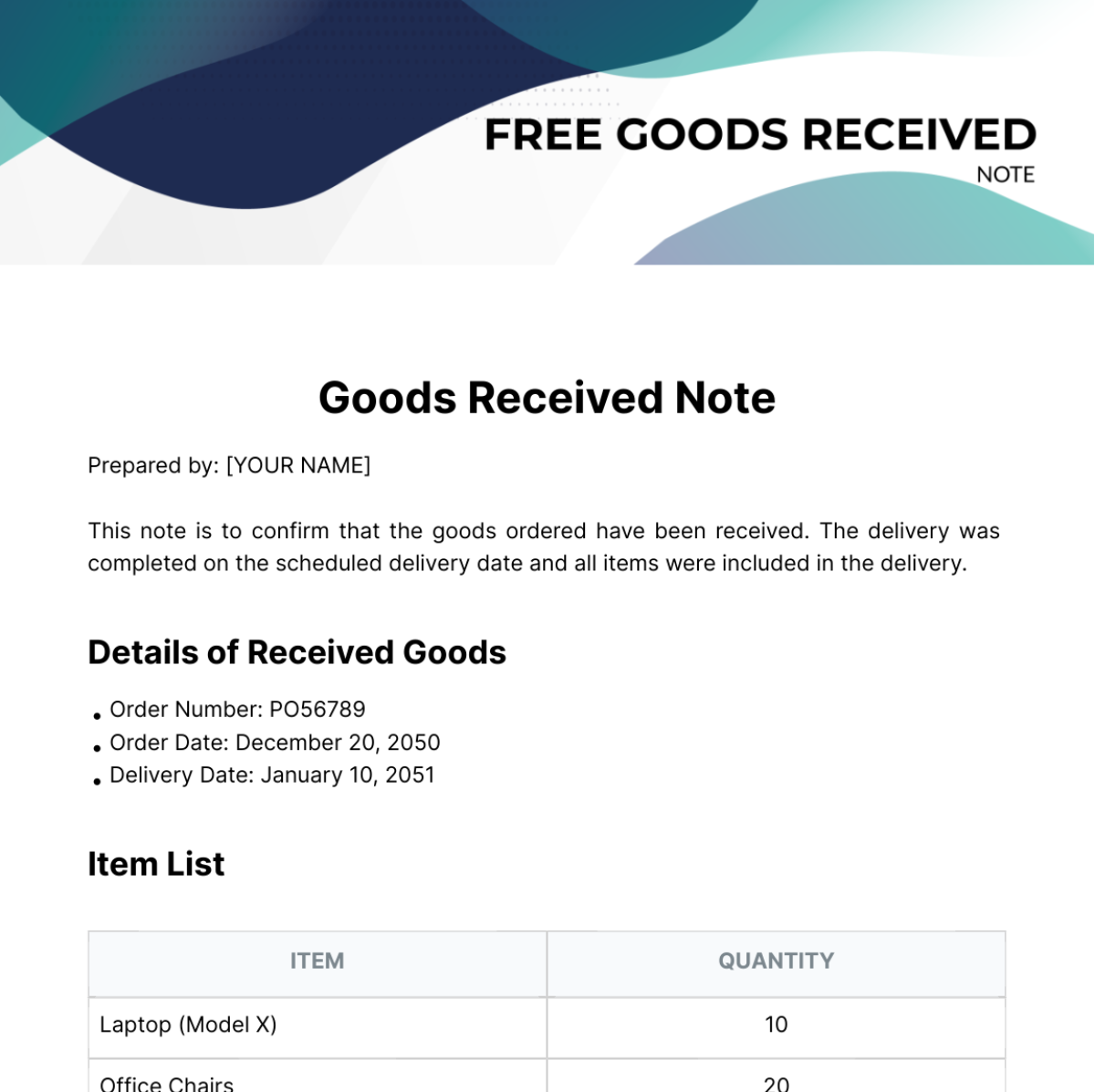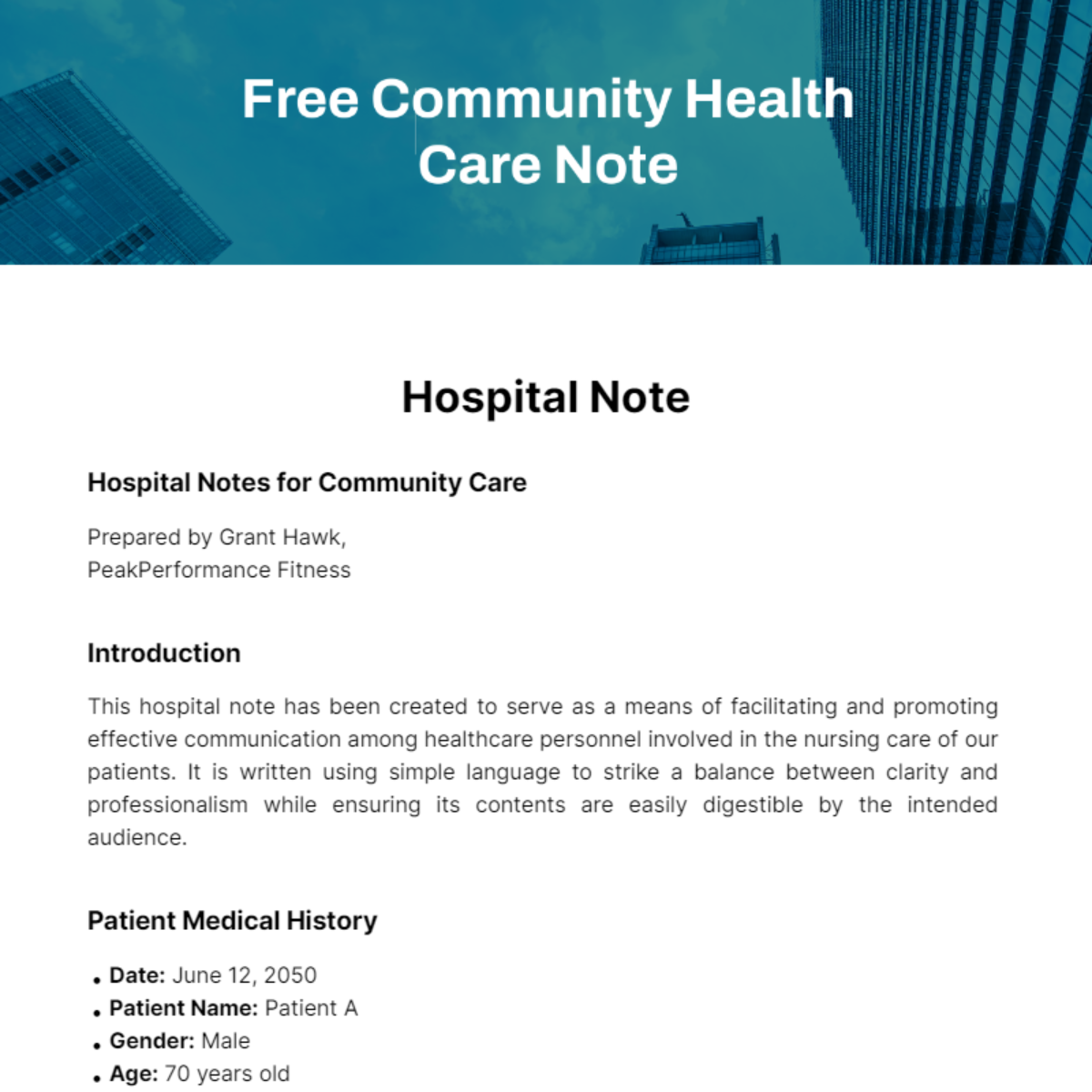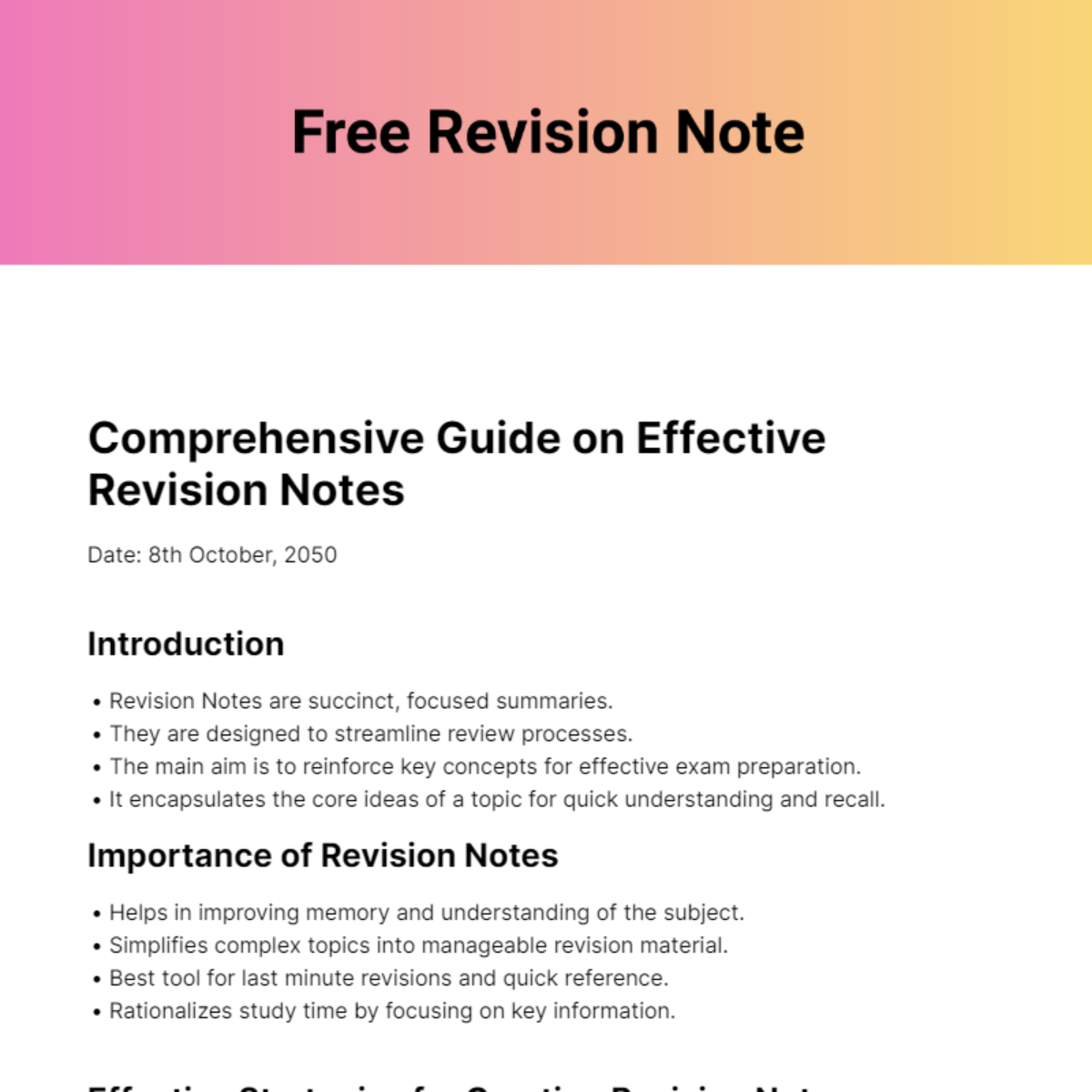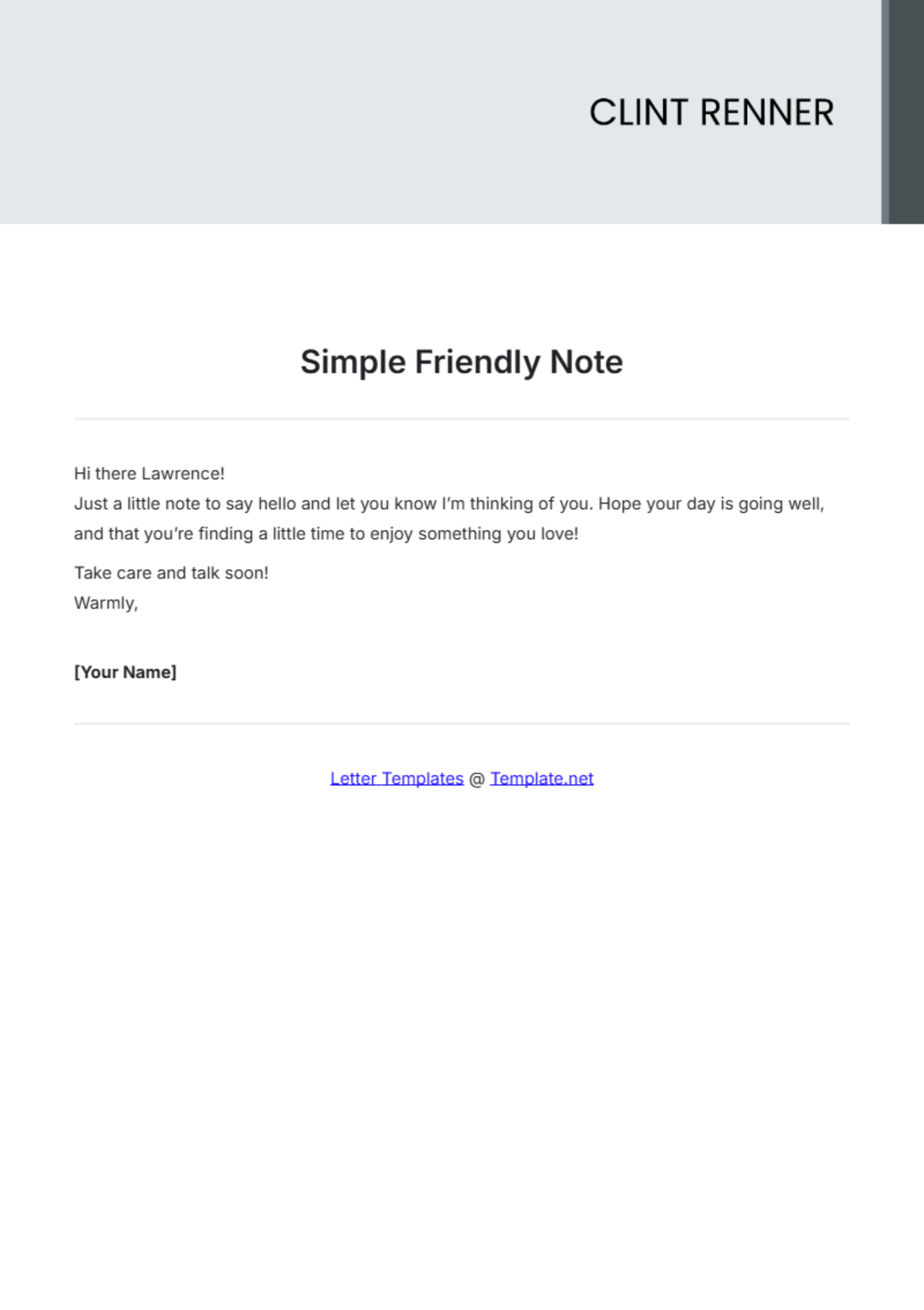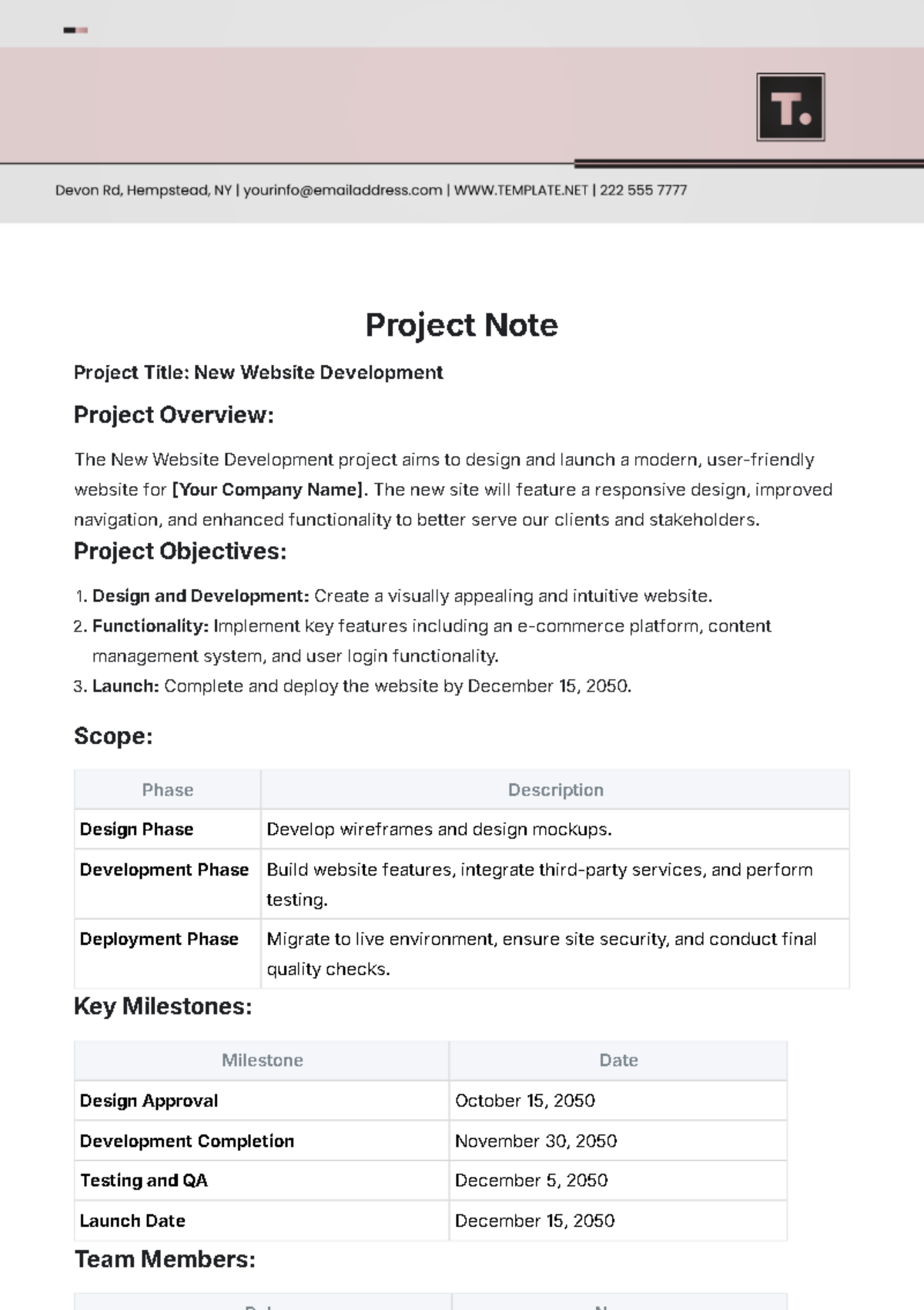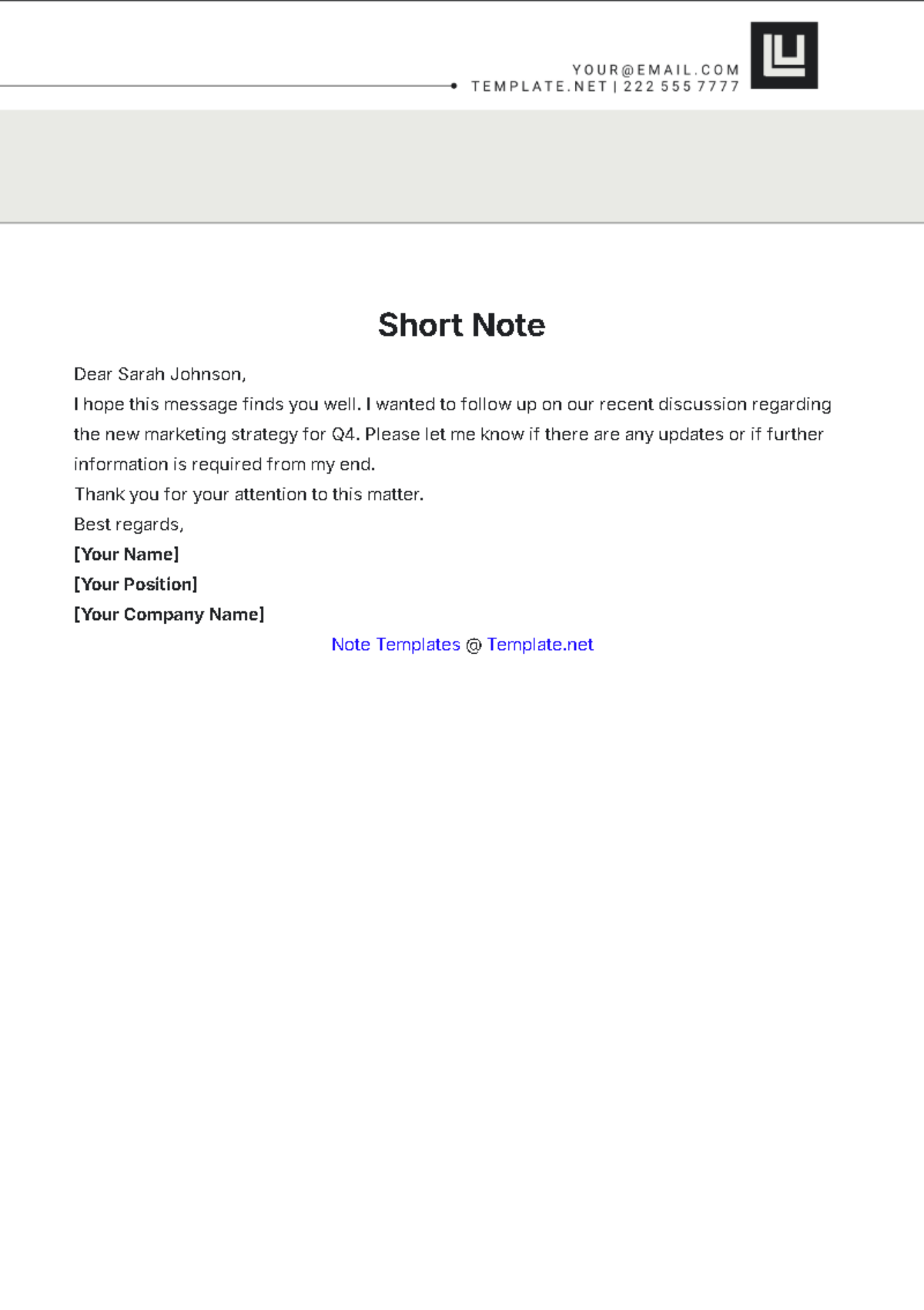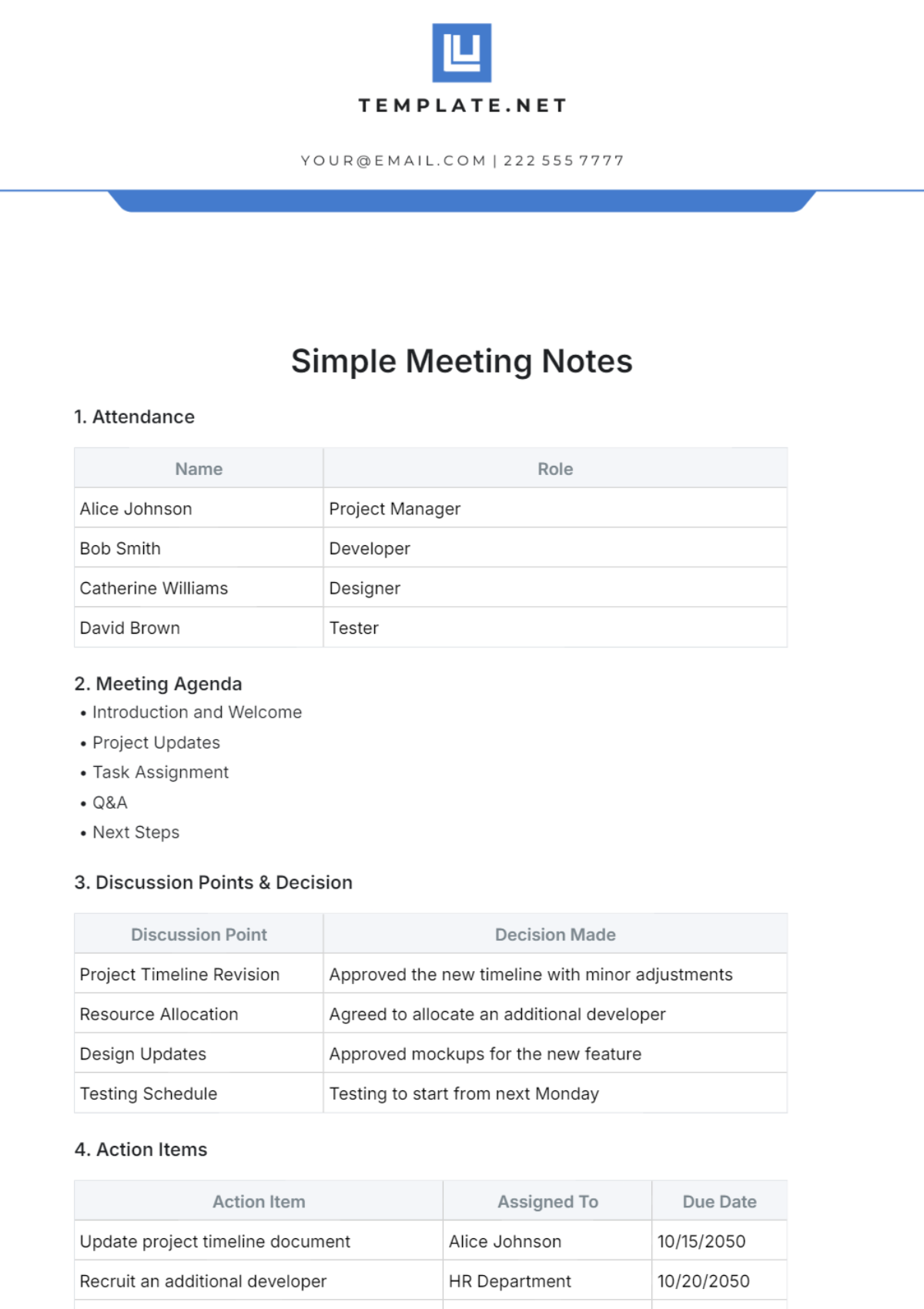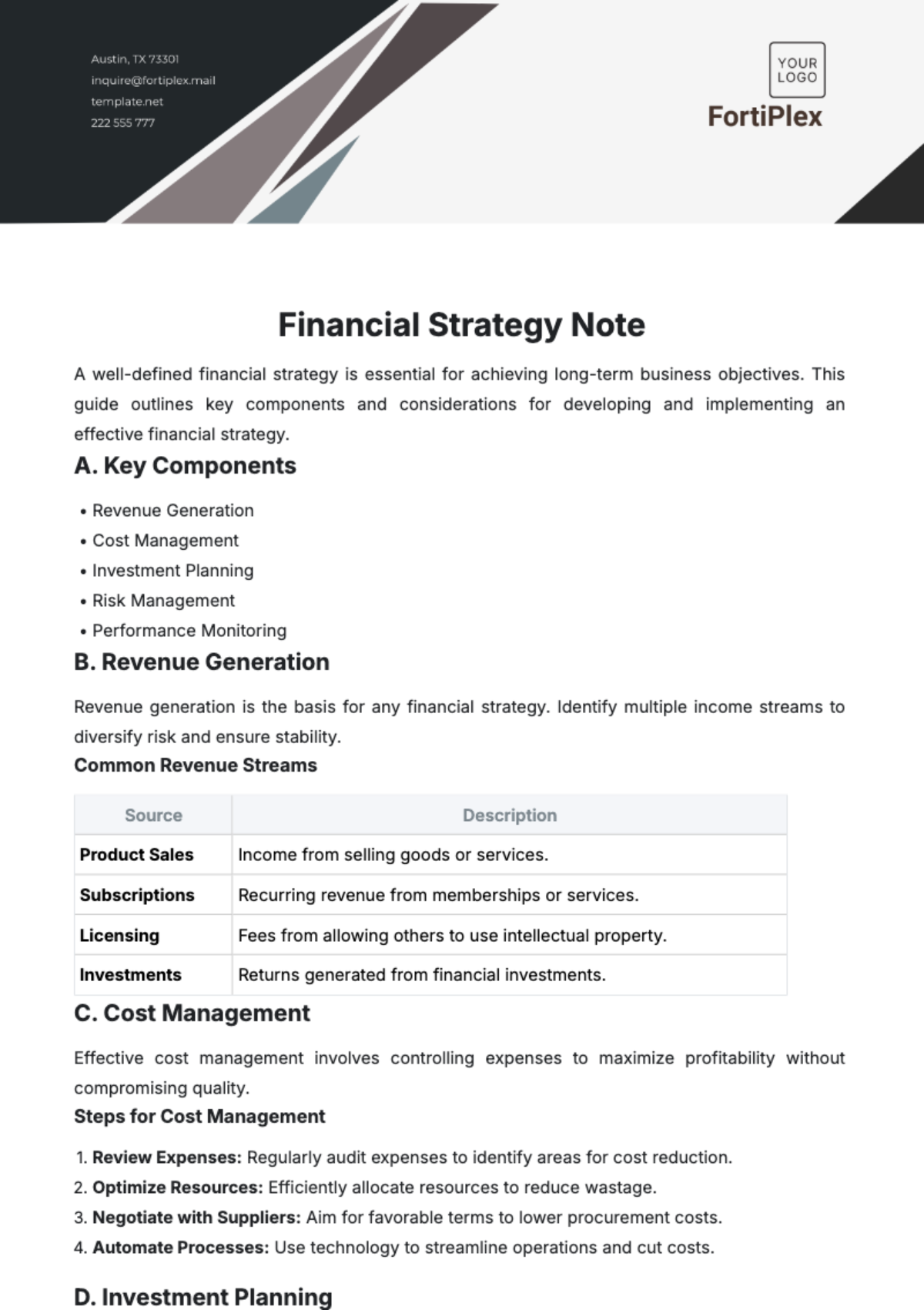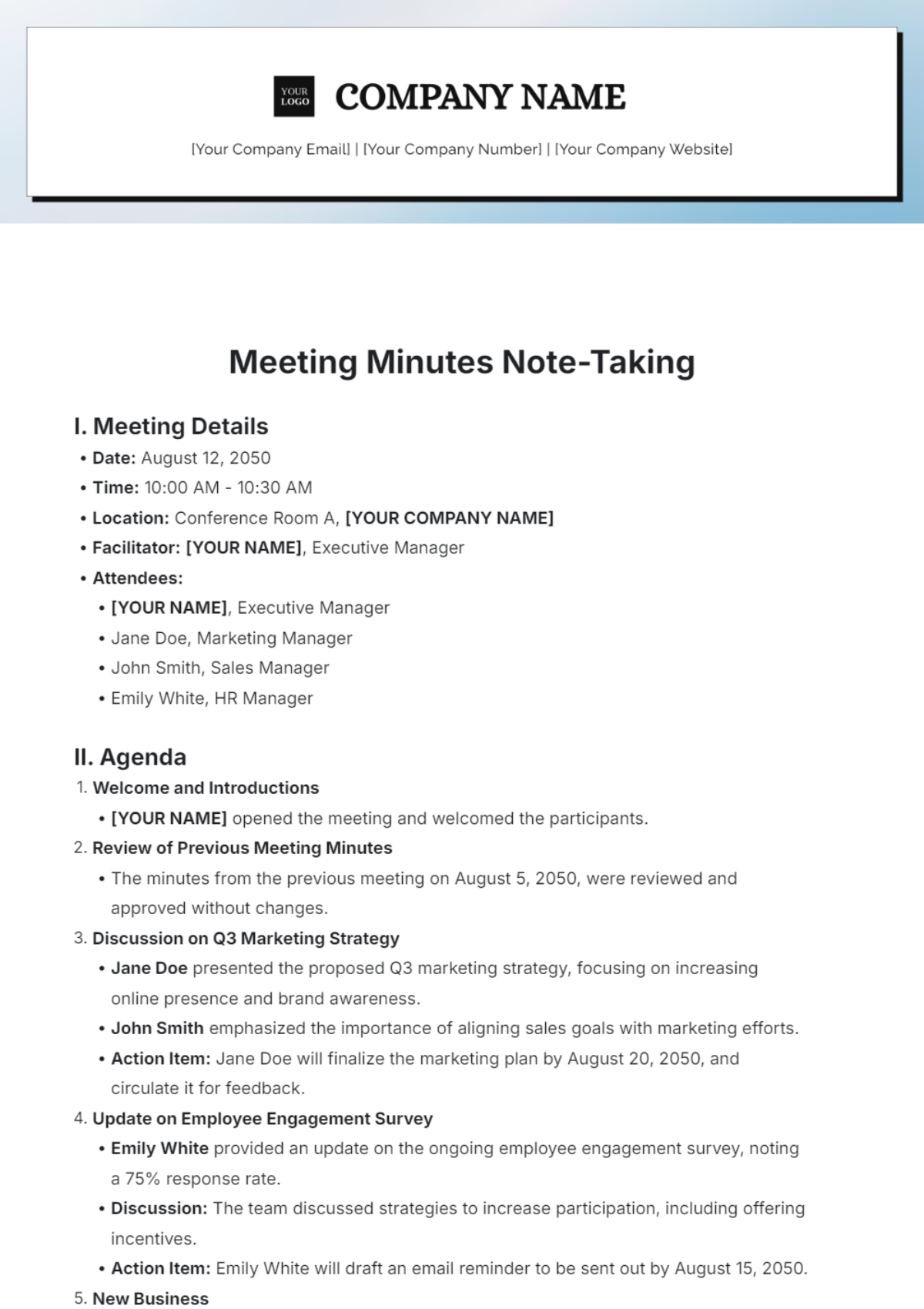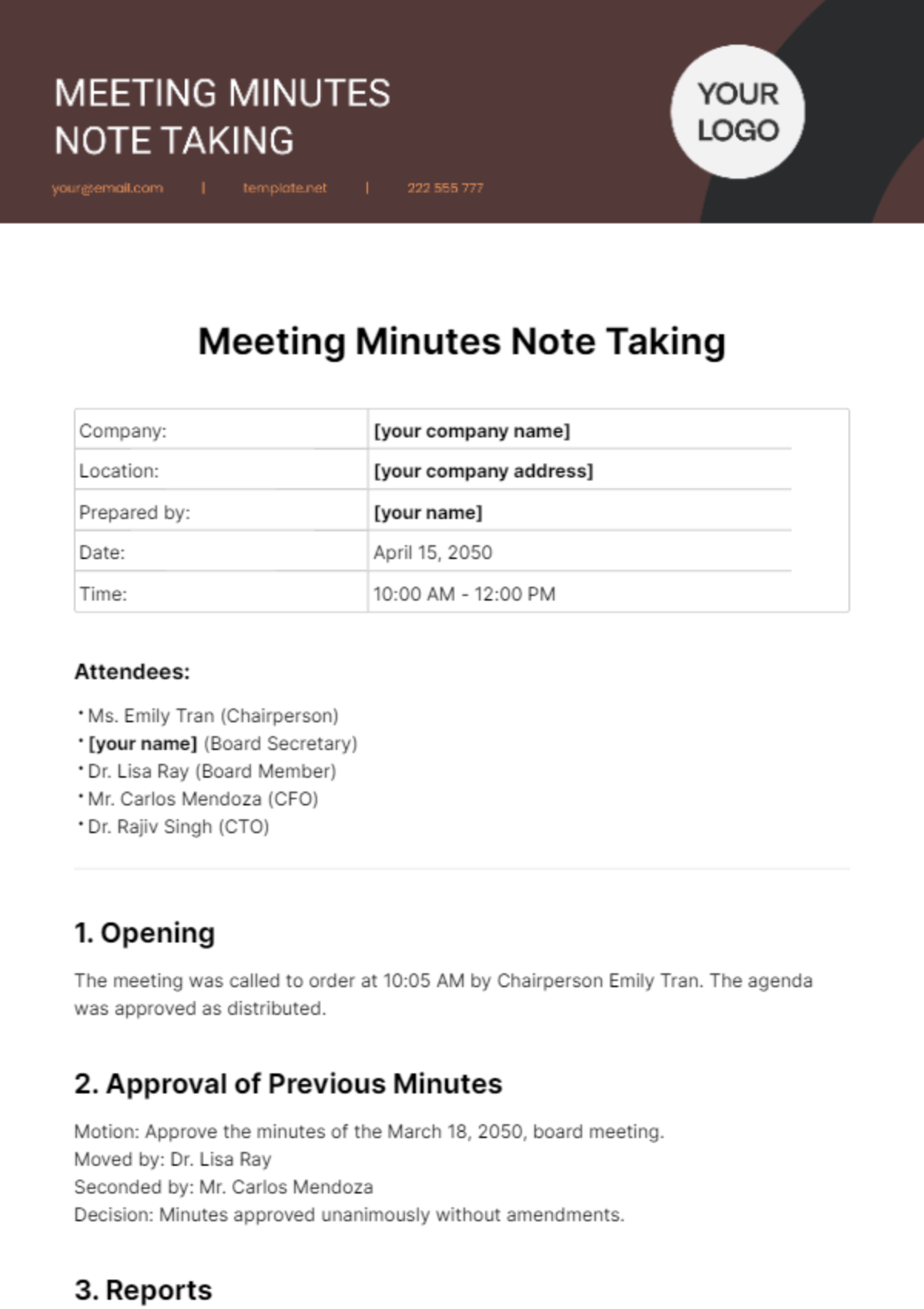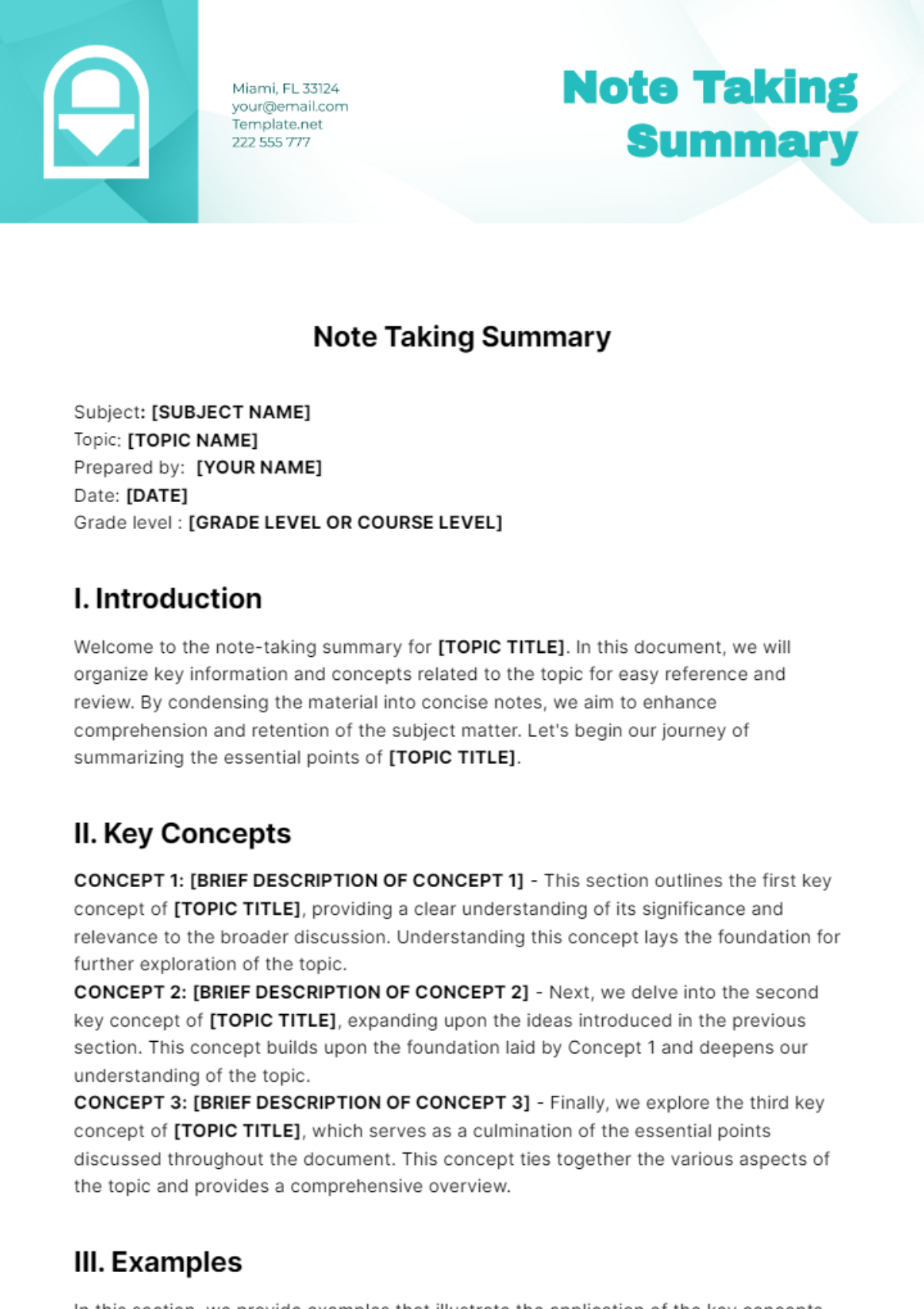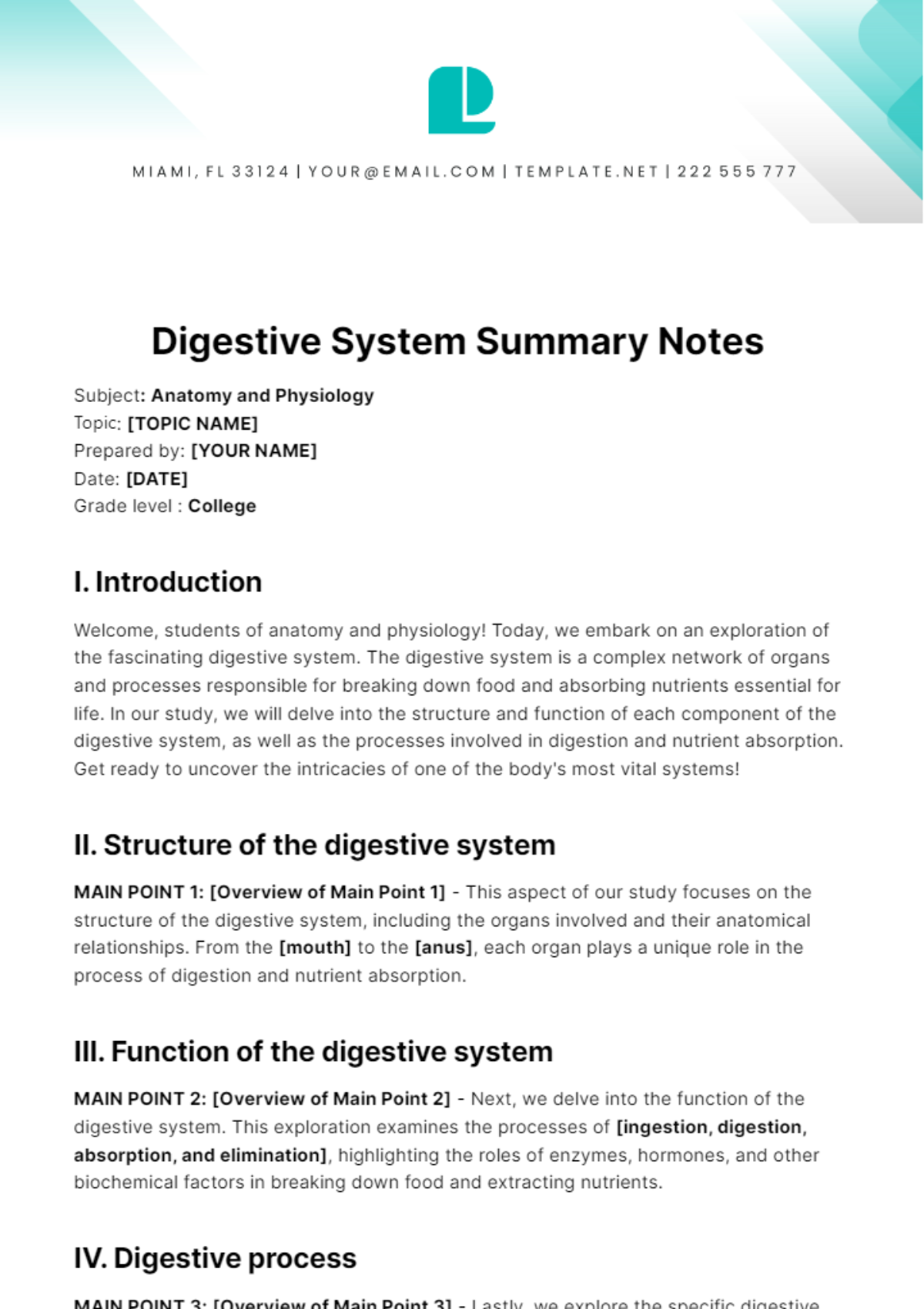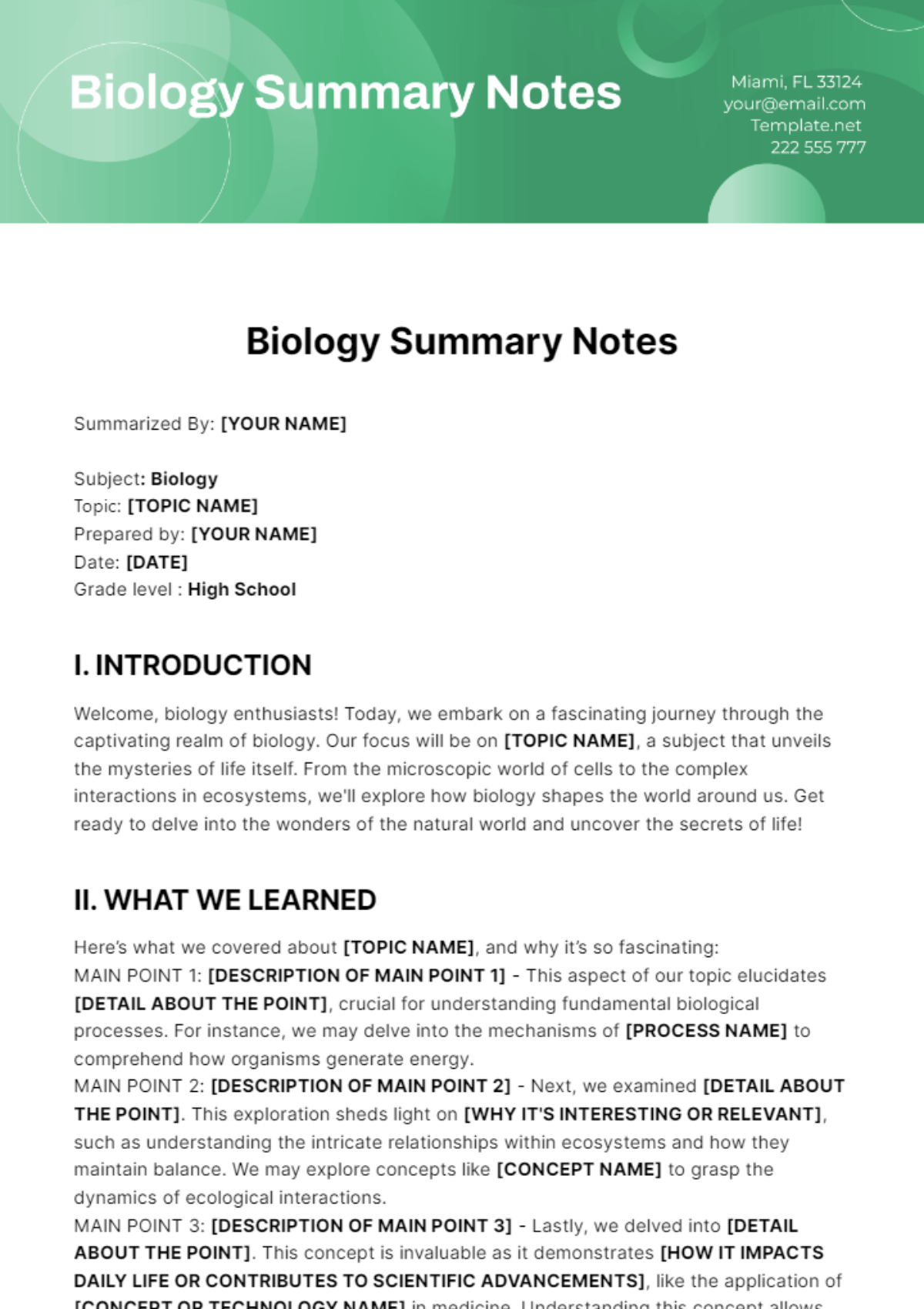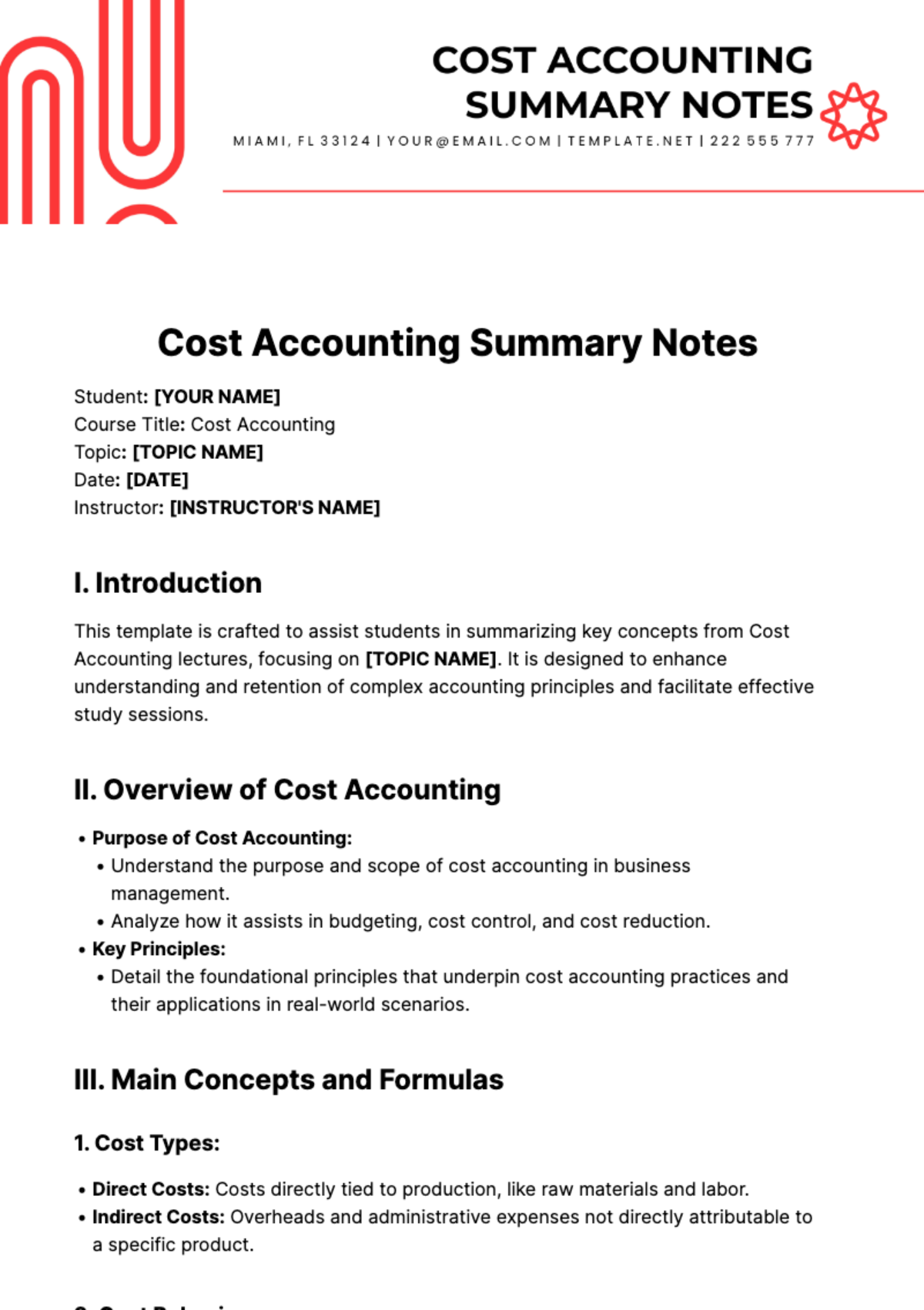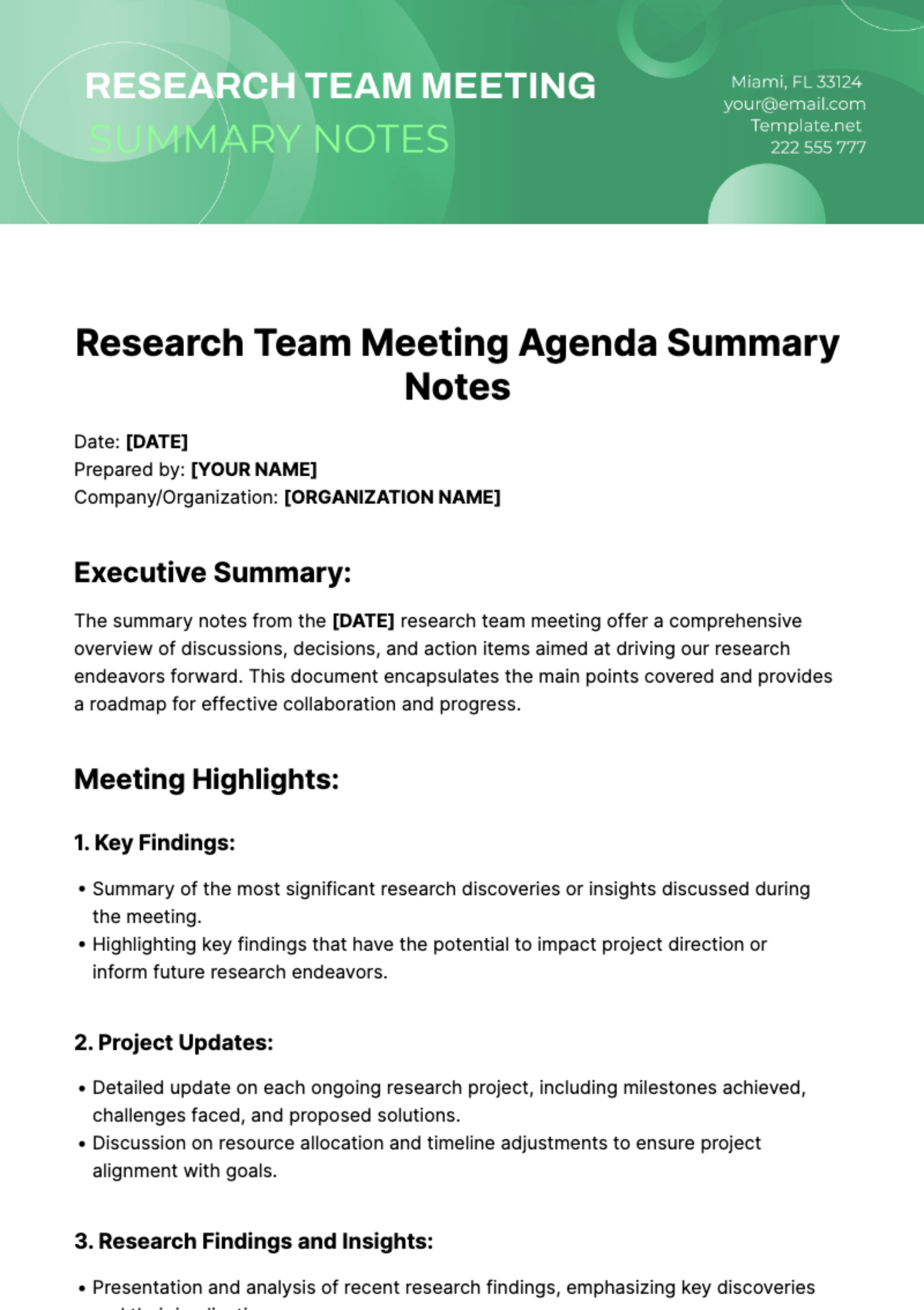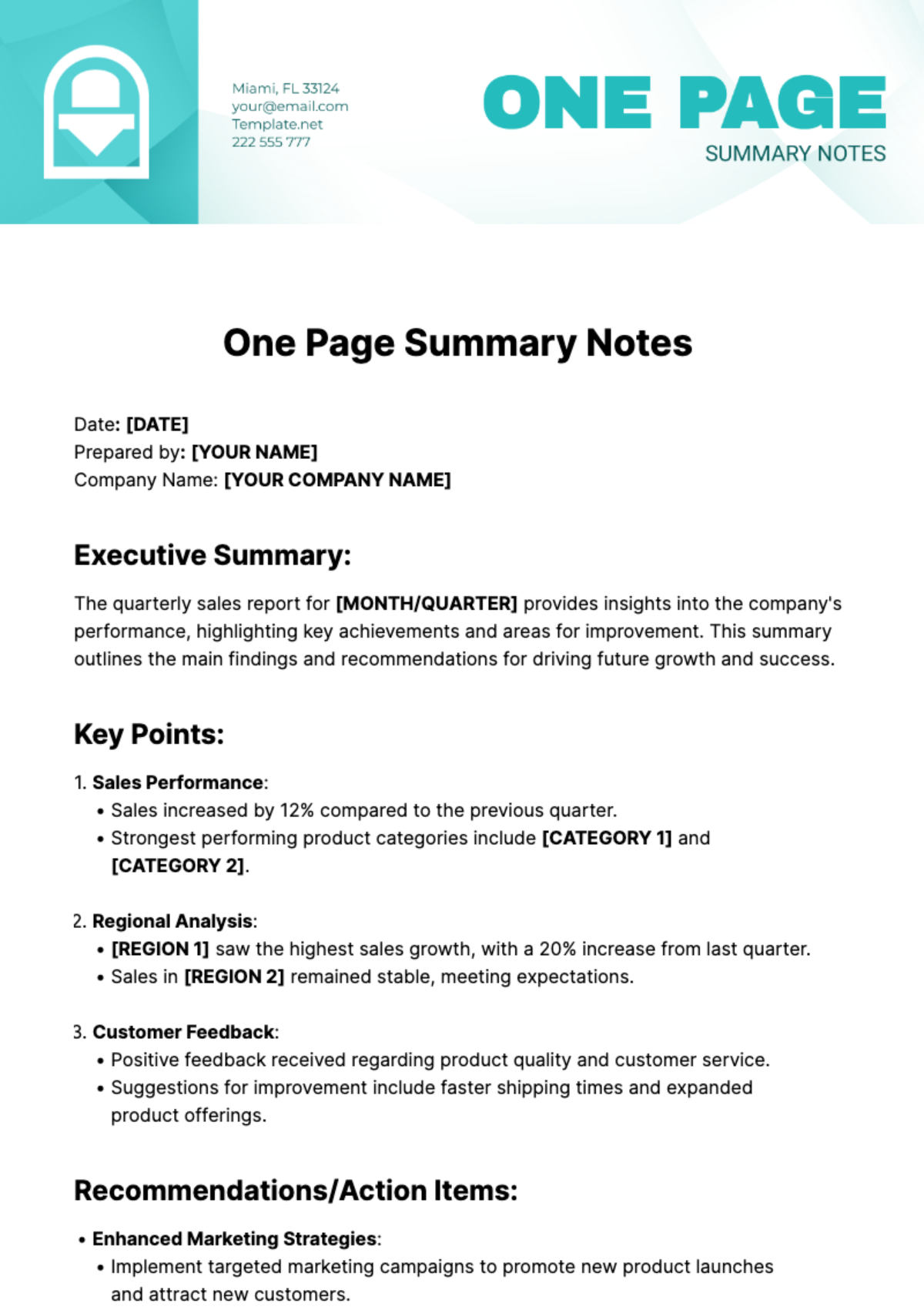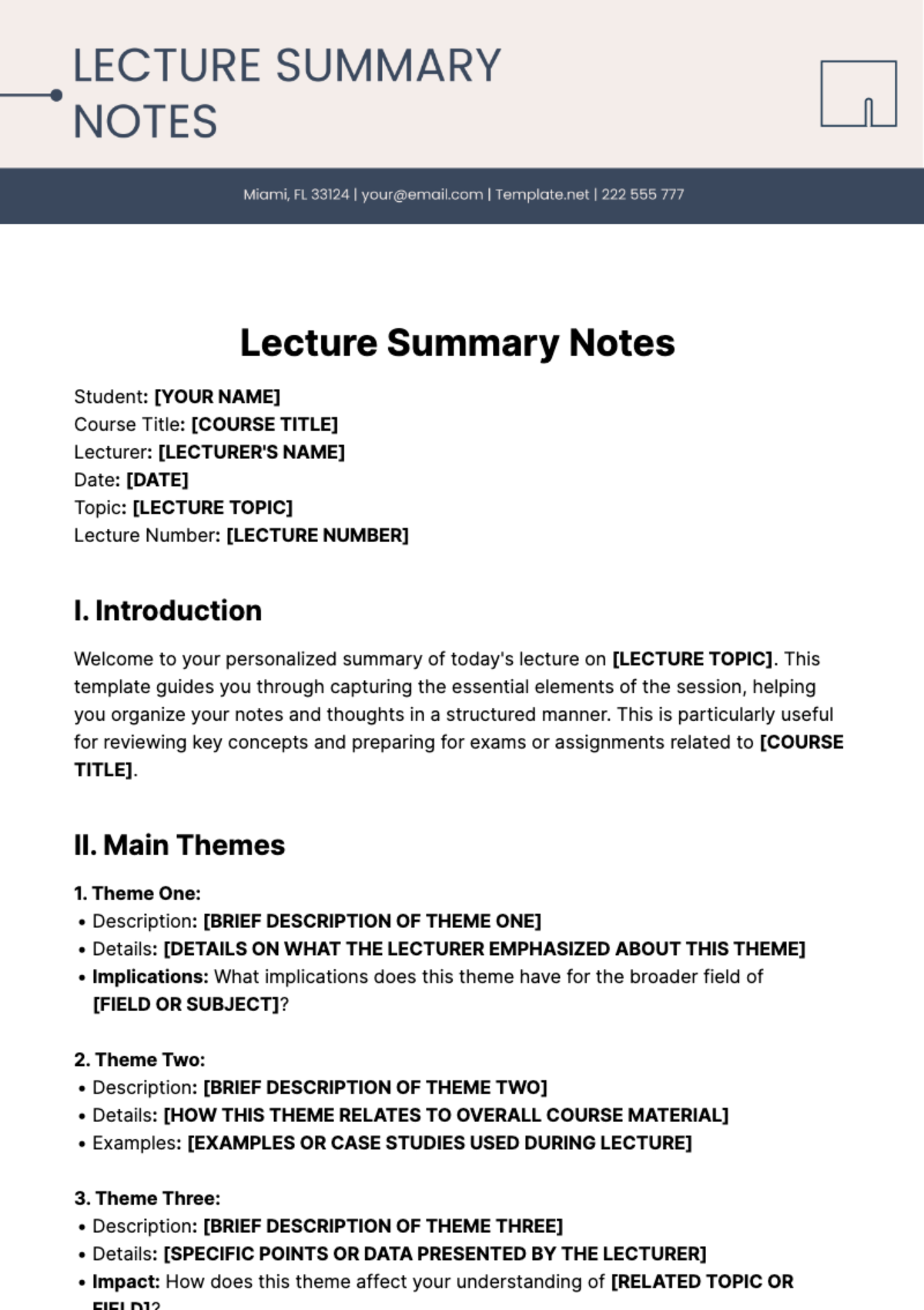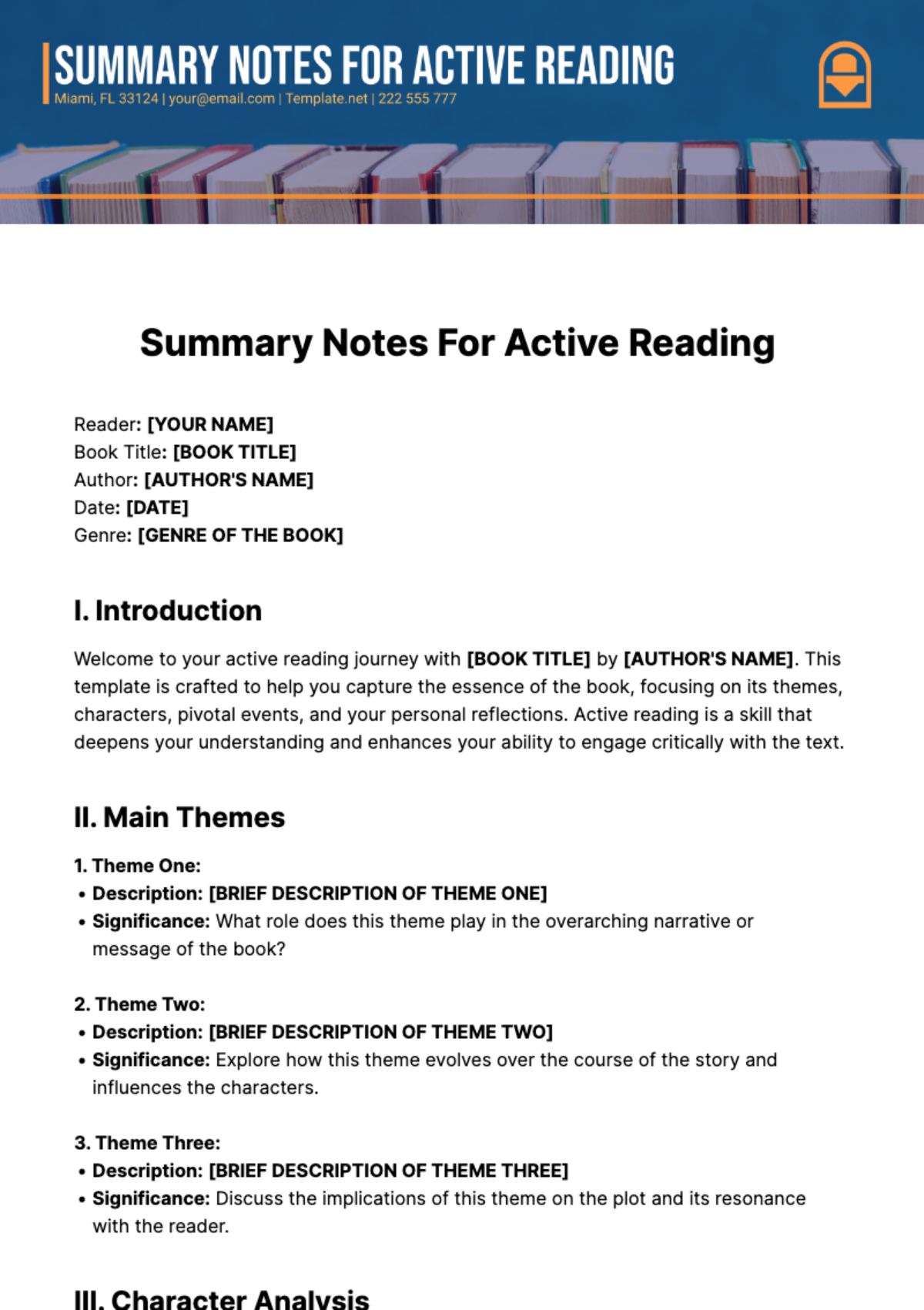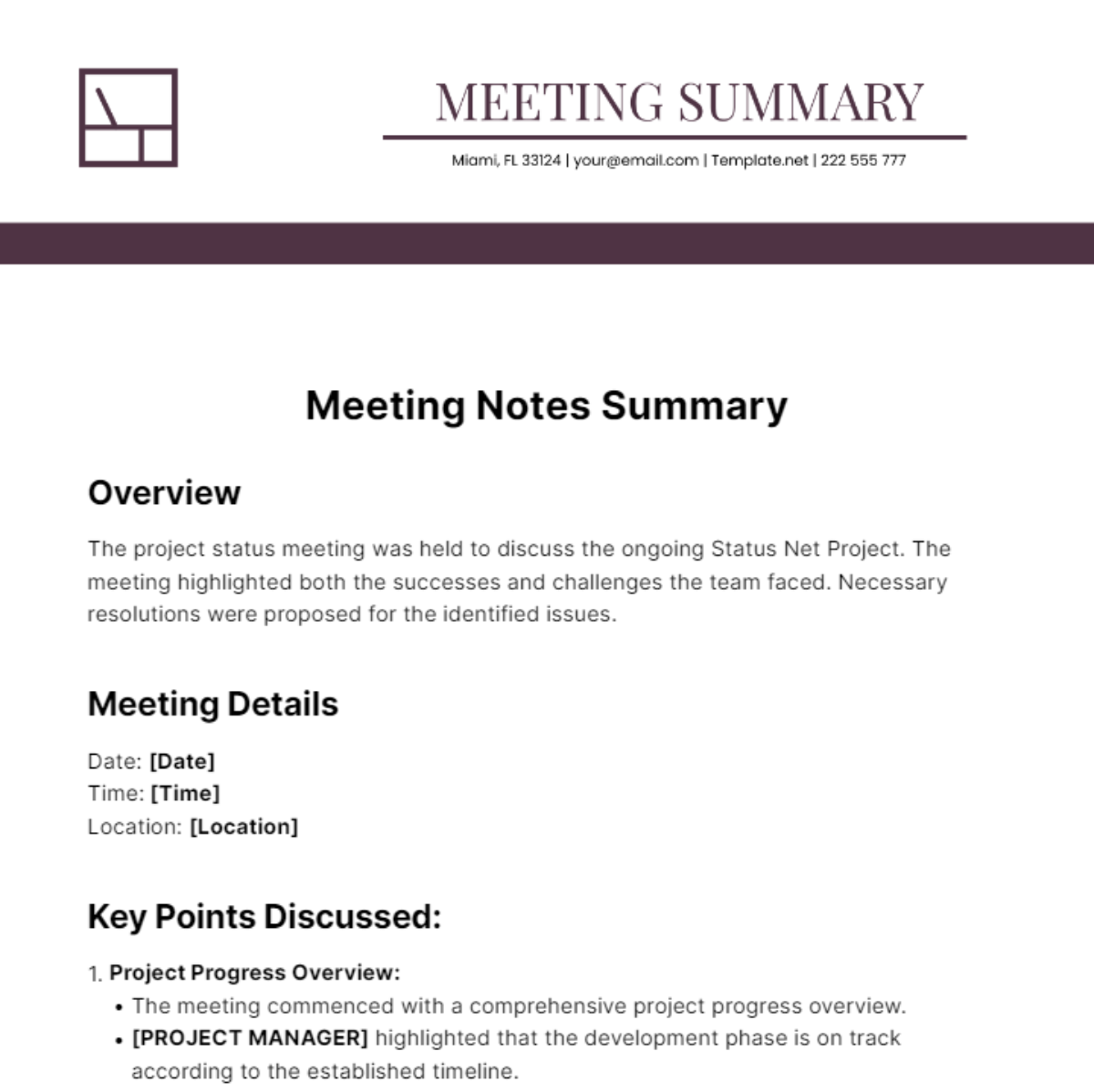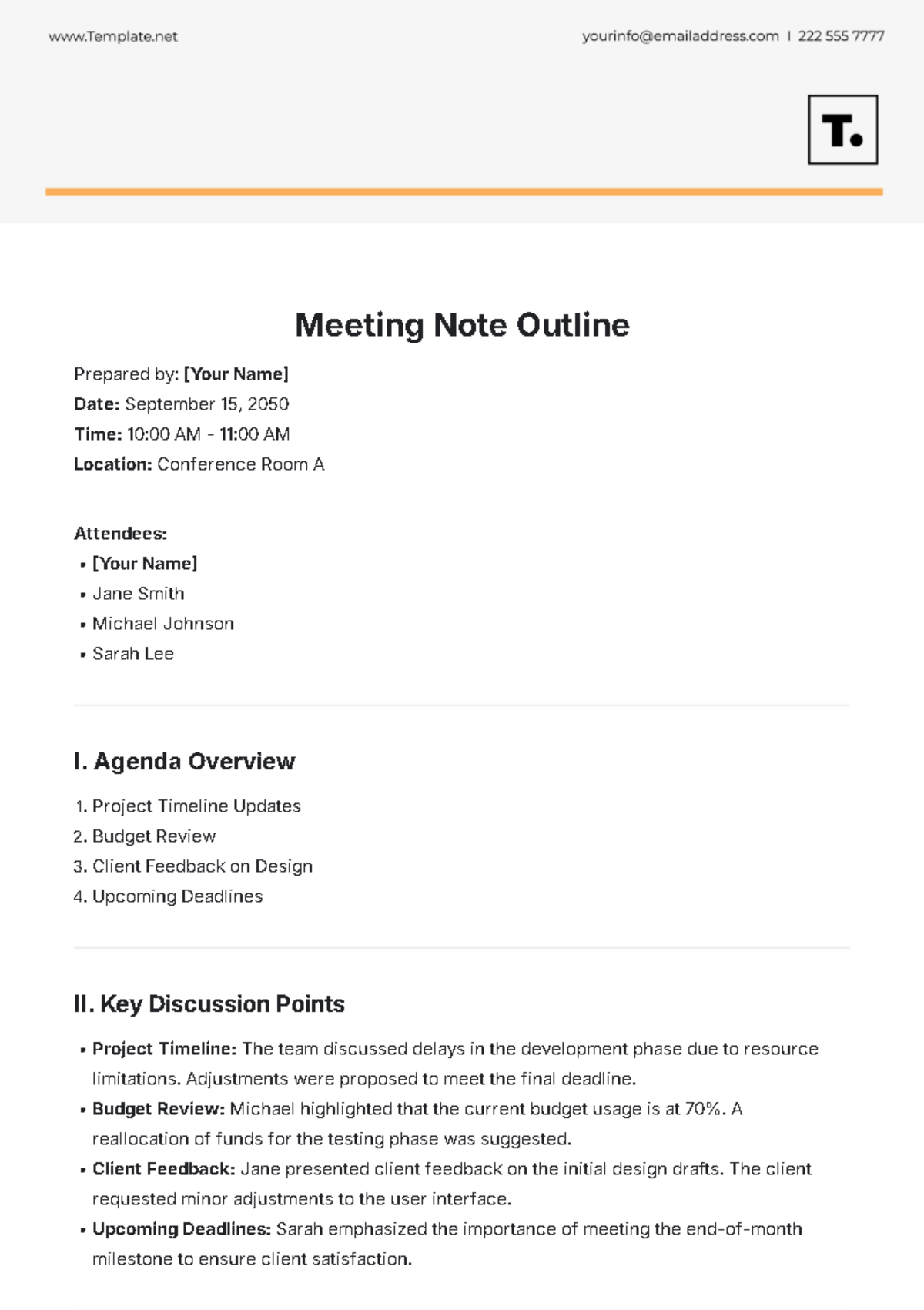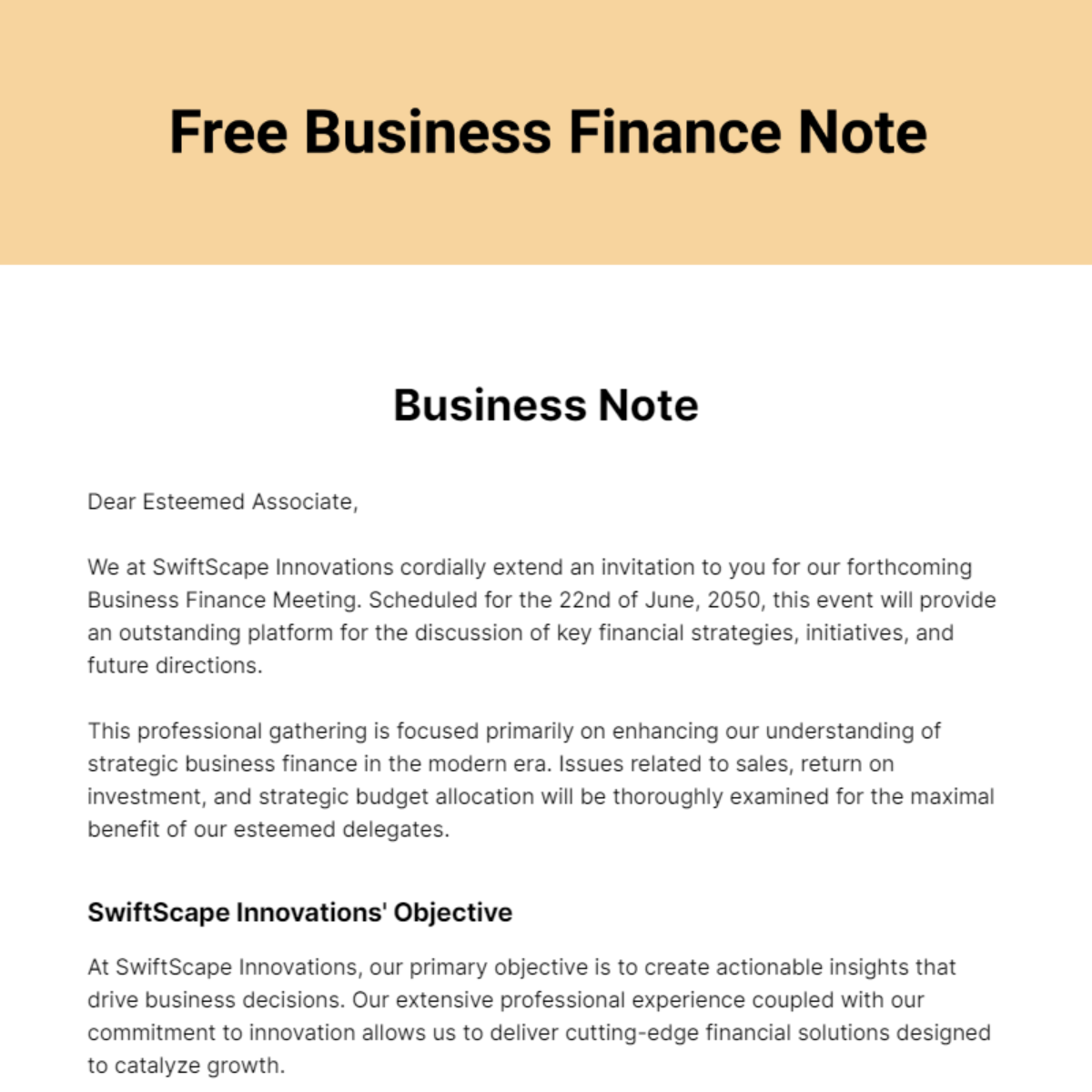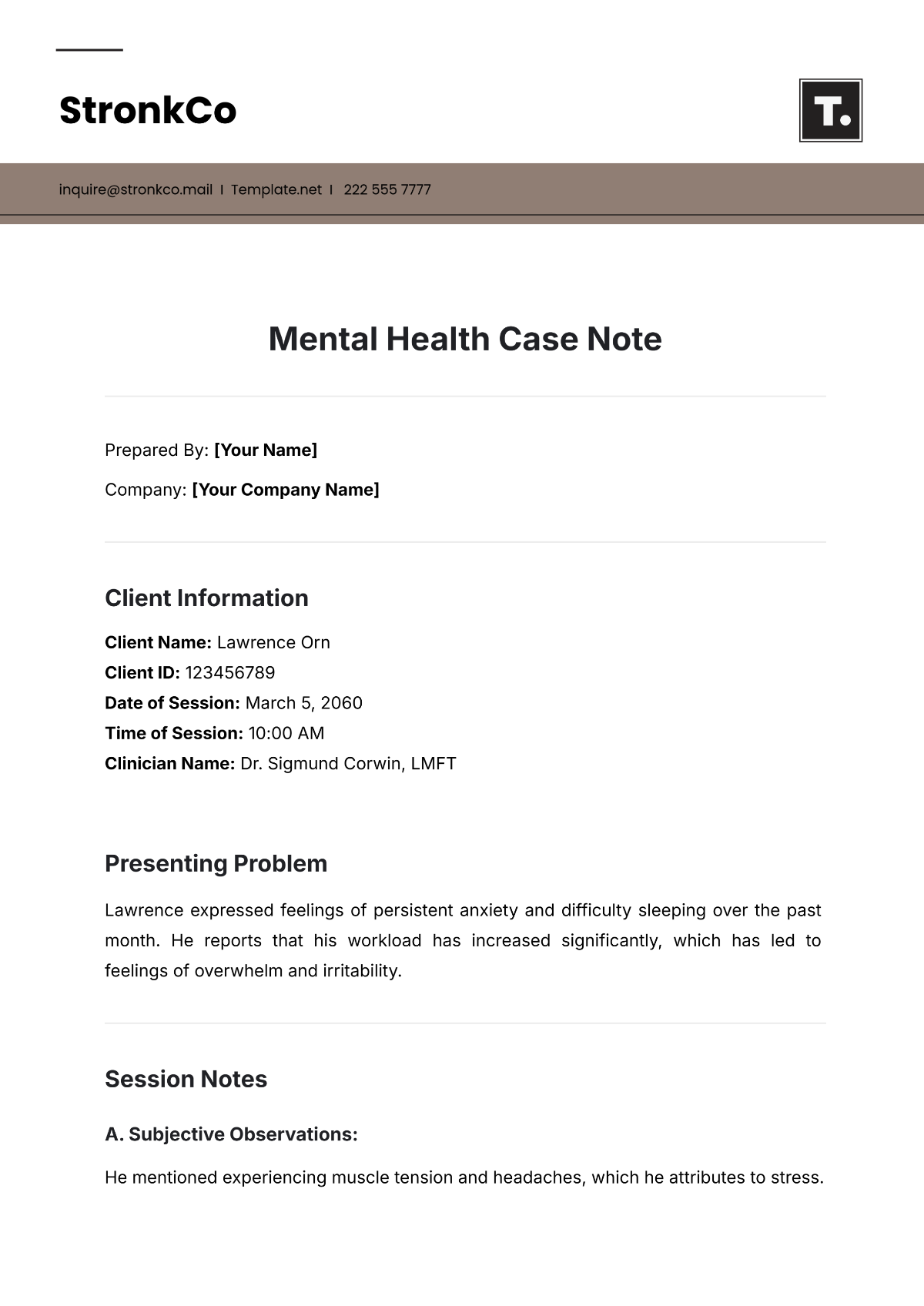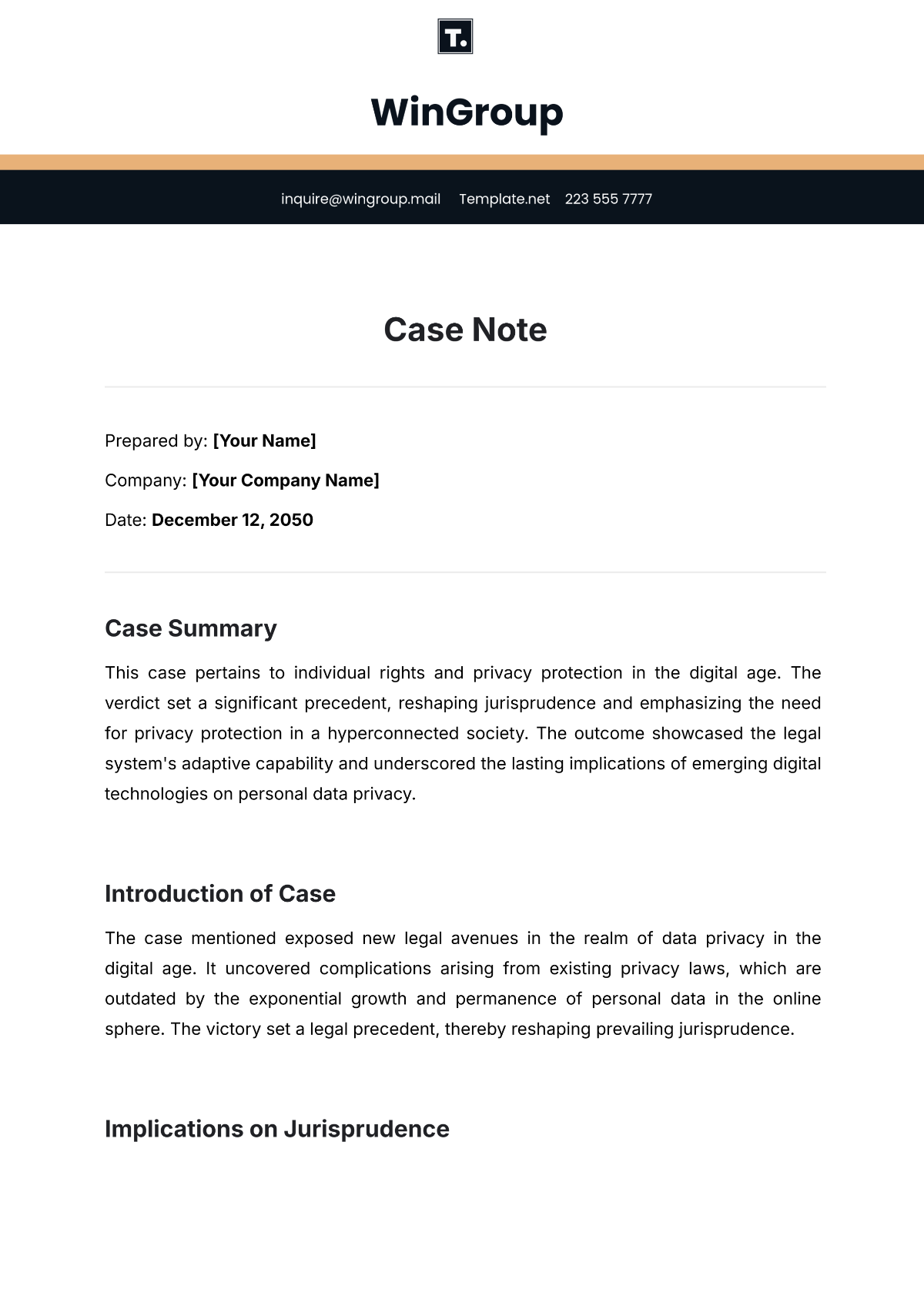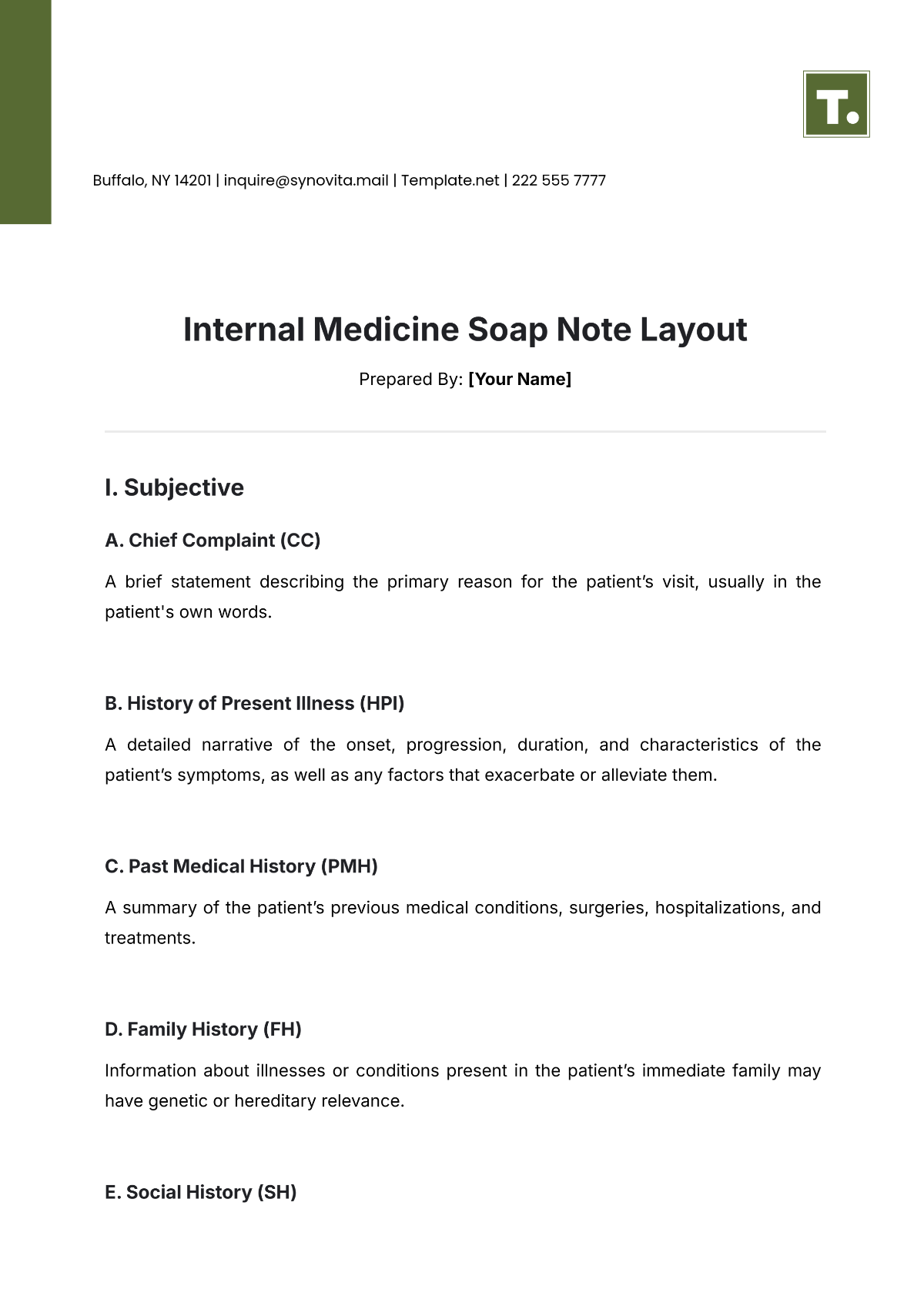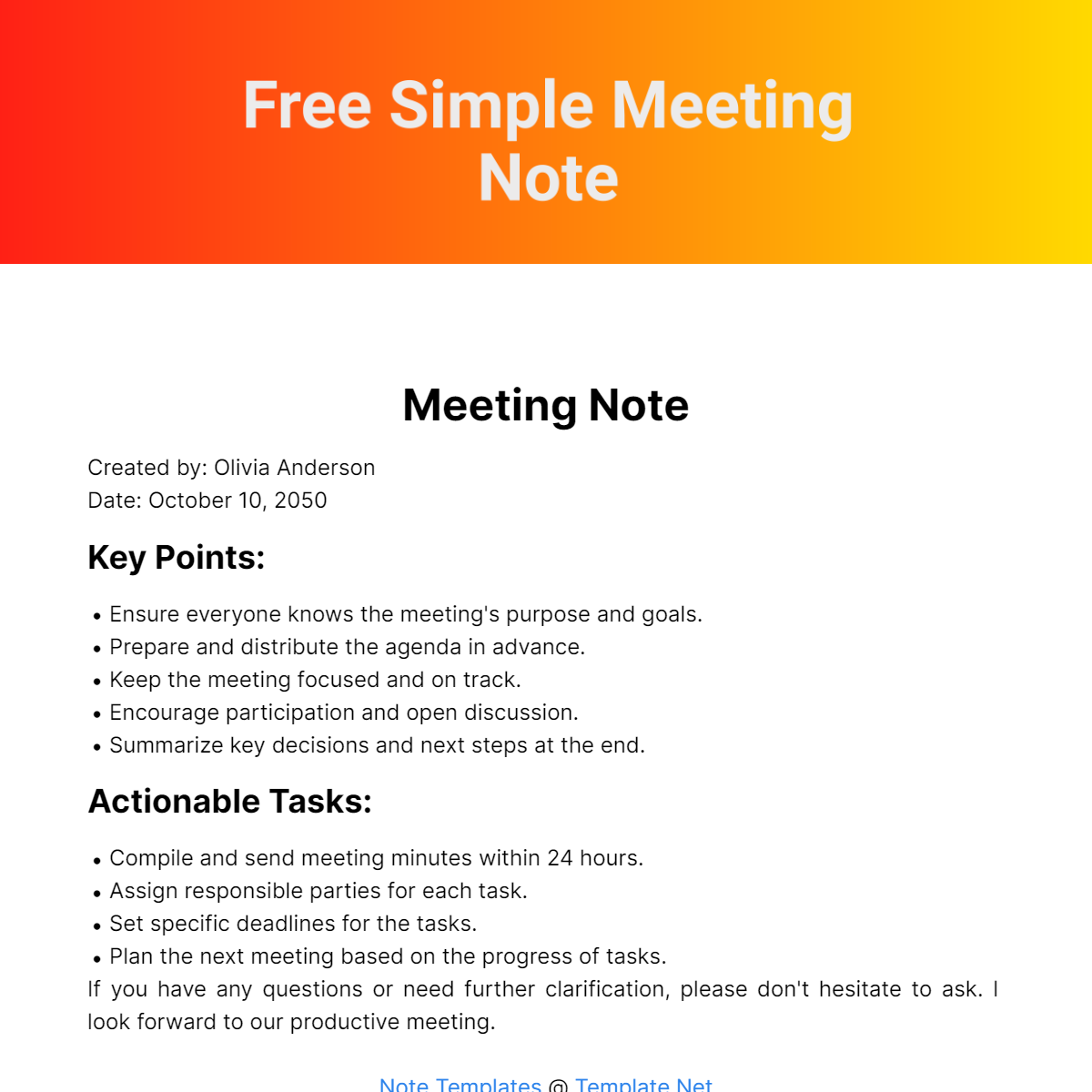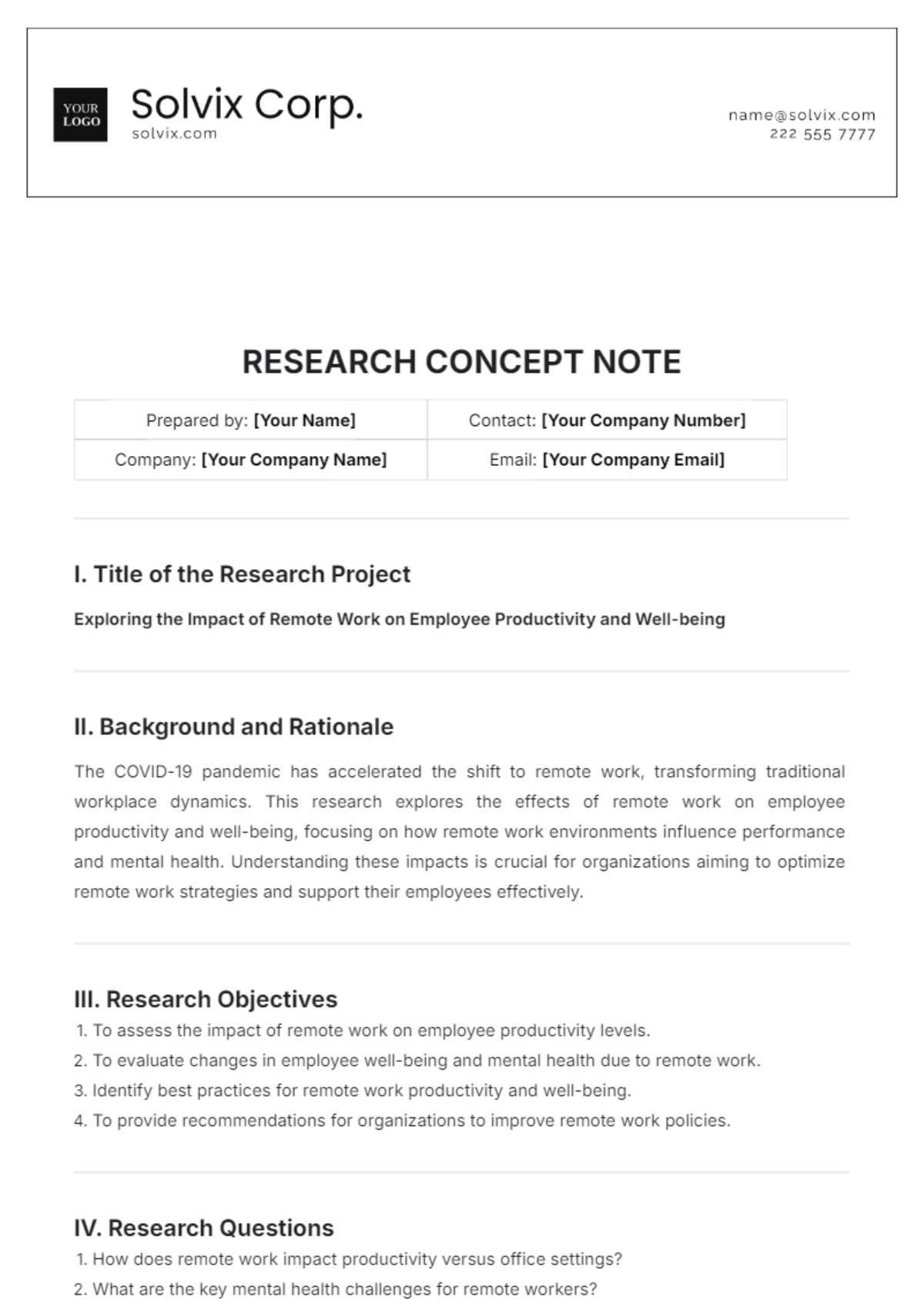Chapter Summary Notes
Subject: [SUBJECT NAME]
Topic: [TOPIC NAME]
Prepared by: [YOUR NAME]
Date: [DATE]
Grade level : [GRADE LEVEL OR COURSE LEVEL]
I. Introduction
Welcome to the summary notes for Chapter [CHAPTER NUMBER], titled [CHAPTER TITLE]. In this chapter, we will delve into the key concepts and ideas presented by the author. By summarizing the main points and discussing their significance, we aim to gain a deeper understanding of the material covered. Let's explore the chapter together and extract the essential insights!
II. MAIN Concepts
MAIN POINT 1: [BRIEF DESCRIPTION OF MAIN POINT 1] - This section introduces us to the concept of [MAIN POINT 1] and its relevance to the broader themes of the chapter. Understanding this concept is crucial for grasping the author's argument and its implications.
MAIN POINT 2: [BRIEF DESCRIPTION OF MAIN POINT 2] - Next, we delve into [MAIN POINT 2], which expands upon the ideas introduced in the previous section. This concept sheds further light on the topic and deepens our understanding of its significance.
MAIN POINT 3: [BRIEF DESCRIPTION OF MAIN POINT 3] - Finally, we explore [MAIN POINT 3], which serves as a culmination of the chapter's key ideas. This concept ties together the various threads discussed throughout the chapter and offers insights into its broader implications.
III. Supporting Evidence
In this section, we examine the evidence presented by the author to support their arguments and conclusions. This may include [QUOTES, STATISTICS, EXAMPLES], or [RESEARCH FINDINGS] that lend credibility to the main points discussed in the chapter.
IV. Reflection
Now, let's take a moment to reflect on the chapter's content and our understanding of it. Consider the following questions:
What are the main takeaways from this chapter?
How do the concepts presented relate to real-world experiences or examples?
What questions or areas of confusion do you still have?
V. Application
In this final section, we explore how the insights gained from this chapter can be applied in practical contexts. This may include [REAL-LIFE EXAMPLES, CASE STUDIES], or [STRATEGIES FOR IMPLEMENTATION] that demonstrate the relevance of the chapter's content to everyday situations or academic pursuits.
VI. Conclusion
In conclusion, Chapter [CHAPTER NUMBER] has provided us with valuable insights into [CHAPTER TITLE]. By summarizing the main concepts, examining supporting evidence, reflecting on our understanding, and exploring applications, we have gained a deeper appreciation for the material covered. As we move forward in our studies, let's continue to engage critically with the text and apply its lessons to our learning journey.


